NEXT GENERATION SPACE INNOVATION
INSIDE: Discover more about space research at Northumbria.
Turn to pages 17-20

INSIDE: Discover more about space research at Northumbria.
Turn to pages 17-20
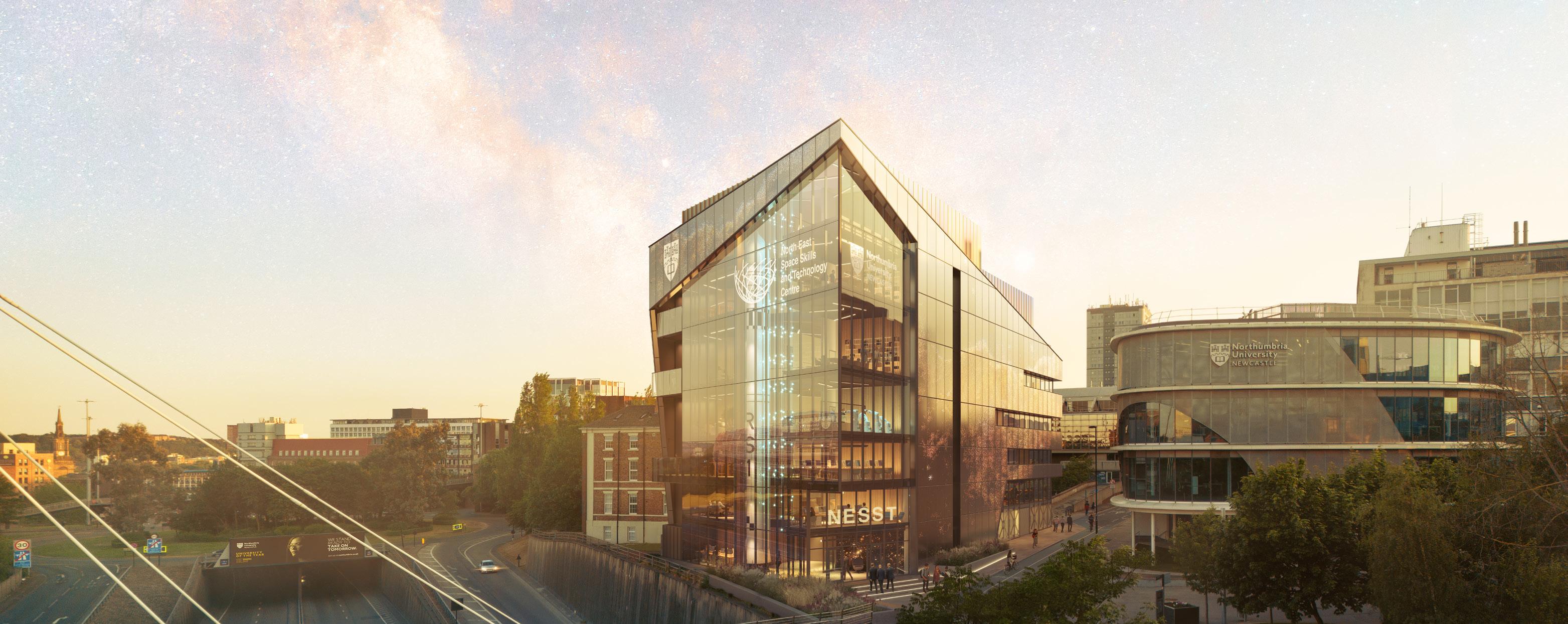
“THIS IS A PIVOTAL MOMENT, NOT JUST FOR NORTHUMBRIA UNIVERSITY, BUT FOR THE WIDER NORTH EAST REGION AND INDEED, FOR THE UK SPACE SECTOR AS A WHOLE.”
PROFESSOR ANDY LONG, VICE-CHANCELLOR AND CHIEF EXECUTIVE OF NORTHUMBRIA UNIVERSITY
The ground-breaking space skills, research and technology centre is being developed on Northumbria University’s Newcastle city centre campus.
The North East Space Skills and Technology Centre, which will be known as NESST, is the result of a £50 million investment with partners including the UK Space Agency and global aerospace giant Lockheed Martin UK Space. NESST has been described as a “game-changer” for the UK space economy and is expected to directly support the creation of over 350 jobs. The project will inject over £260 million into the North East economy over the next 30 years, playing a
critical role in the Government’s levelling-up agenda and becoming a catalyst for the wider development of the UK space sector – especially in the North East region.
The development of NESST will see the creation of a new national space asset that brings together industry and academia to collaborate on internationally significant space research and technological developments. Situated in the heart of the University’s Newcastle city
campus, NESST will put the UK at the forefront of research and innovation in various fields including optical satellite communications, space weather and space-based energy. The Centre will lead the way in providing specialist education and training, guaranteeing a continued pipeline of talent to meet the future needs of the UK space sector. Work is now well under way after plans were given the green light by Newcastle City Council in
February, when designs for the site were backed unanimously by the planning committee. The new building, which is being developed by leading UK construction and civil engineering company Sir Robert McAlpine, is expected to open during the academic year 2025/2026. It will comprise world-class laboratory, testing, teaching, collaboration and office spaces. The surrounding public spaces will be extensively regenerated to create an attractive new environment.
A major stimulus to the already thriving local space cluster ecosystem, NESST will be home to some of the University’s key existing partnerships with local, national and international organisations and will also be open to businesses of all sizes working in the space sector. Continues on Pg. 2
Spin-out set to transform respiratory care, Page 4
AN INITIAL ARTIST’S IMPRESSION OF THE NESST DEVELOPMENT IN THE HEART OF THE UNIVERSITY’S NEWCASTLE CITY CAMPUS

Contact lenses developed to diagnose glaucoma, Page 9



Major ice loss in Antarctica passes the point of no return, Page 23
Social media data changes put research at risk, Page 26
Driving improvement with lessons learnt from Covid-19, Page 30
North East entrepreneur champions value of international graduates, Page 32


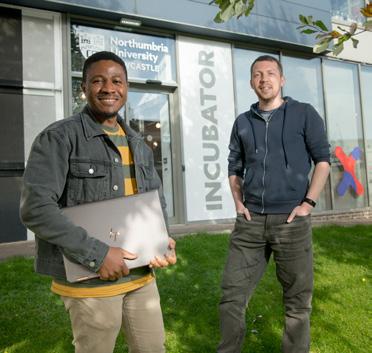
Researching responsible AI in policing, Page 33


Continued from Pg. 1
Commenting on the development, Professor Andy Long, Vice-Chancellor and Chief Executive of Northumbria University, said: “This is a pivotal moment, not just for Northumbria University, but for the wider North East region and indeed, for the UK space sector as a whole.
“This catalytic funding from both the UK Space Agency and Lockheed Martin UK Space recognises the world-leading excellence of space research at Northumbria University. Quite simply, NESST will be a gamechanger for the whole of the North East, ensuring the region becomes a major hub for innovation in the global space economy.”
Dr Paul Bate, Chief Executive of the UK Space Agency, said: “Our
space sector has been concentrated in London and the South East, but in recent years we’ve seen the emergence of vibrant clusters across the whole of the country and significant investments from worldleading companies such as Lockheed Martin UK Space. This is a fantastic opportunity for Northumbria University to further propel the UK to the forefront of world-class research and innovation with the North East Space Skills and Technology Centre (NESST), helping us lead the way in optical satellite communications, space weather and energy research, education and training.”
Announced at the UK Space Conference in November 2023, the UK Space Agency awarded the University £10 million to support the development of NESST.
In addition to this, Lockheed Martin UK Space committed a further £15 million investment in NESST to work with Northumbria’s experts on collaborative research, technology development, in-demand skills provision and STEM engagement activities over a 10-year period. Northumbria is match-funding the UK Space Agency and Lockheed Martin UK Space awards with a further £25 million, bringing the overall total investment in NESST to £50 million.
Click the QR code to find out how Northumbria is powering the next generation of space innovation.


Readers of Northumbria University News are being encouraged to share their thoughts on the publication to be in with a chance of winning a £100 shopping voucher.
Answer a few questions on where you pick up your copy and the kind of content you’d like to see more of, and one lucky winner will be chosen at random. Click the QR code below, submit your feedback and you’ll be entered into a prize draw for your chance to win.
The lucky winner will be able to choose between receiving the voucher or making a donation to our Higher Education Without Barriers campaign. This fund was established at Northumbria to provide a range of financial support, mental health and wellbeing services, and community projects to make participation and progression in higher education more achievable for academically talented students, regardless of their background.

Northumbria University has been nationally recognised for the exceptional support it provides for nursing students, winning the Outstanding Support for Students title at the Times Higher Education awards.
The award reflects the success of a project specially designed by Northumbria to help student nurses who, for reasons including mental health, financial difficulties, family responsibilities and academic struggles had paused their studies, to complete their programmes.
Nationally, one in eight student nurses currently do not complete their degree, which has an impact on the future NHS workforce. With the government’s ambitious target of increasing the nursing workforce by a further 50,000 nurses, it is vital to ensure that nursing students are supported to complete their studies.
Led by Associate Professors Barry Hill and Annessa Rebair, a team from Northumbria’s Department of Nursing, Midwifery and Health created a six-week summer programme specially designed to
support nursing students manage the challenges they had faced whilst studying. The programme was so successful that more than half of the 130 students that took part felt able to return to their studies at the end of the six weeks as a result.
The judging panel praised the University’s work saying, “With staffing shortages across the NHS, the role of universities in producing the next generation of health practitioners has never been more important. This project is an innovative intervention for helping as many students as possible succeed in their ambition to enter nursing.”
Professor Debbie Porteous, who has recently retired from her role as Head of the Department of Nursing, Midwifery and Health, praised the team who led this innovative project.
“STUDENTS ARE AT THE HEART OF EVERYTHING WE DO HERE AT NORTHUMBRIA, AND WE ARE ABSOLUTELY DELIGHTED THAT OUR WORK HAS BEEN RECOGNISED AS THE BEST EXAMPLE OF SUPPORT FOR STUDENTS IN THE UK AT THE TIMES HIGHER EDUCATION AWARDS.”
“Nursing is a hugely rewarding career, but some students can struggle to complete their training for a variety of reasons, such as how to juggle their home life and studies, the emotional toll of the job or finding it hard returning to learning after an extended break if they join as mature students,” she said.
“Students are at the heart of everything we do here at Northumbria, and we are absolutely delighted that our work has been recognised as the best example of support for students in the UK at the Times Higher Education awards.”
Click the QR code to read more about Northumbria’s success at the Times Higher Education awards.


A
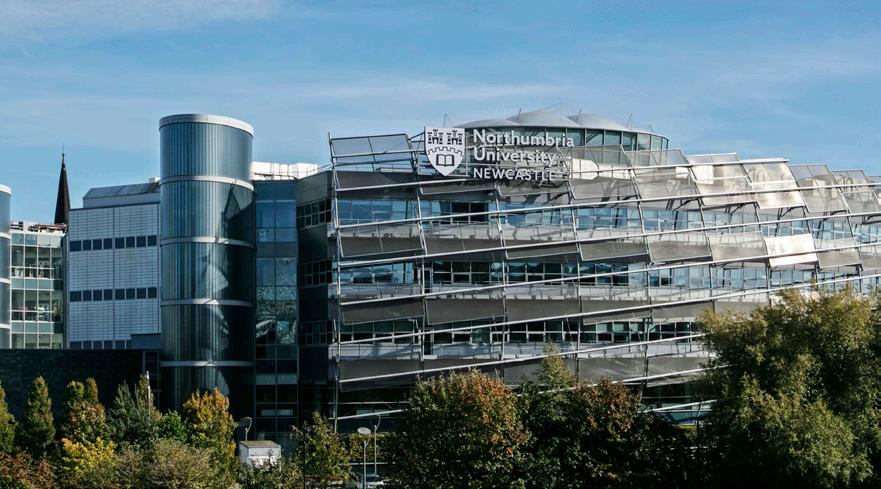
Inspired teaching and research-rich learning are providing students at Northumbria University with gold-rated outcomes, according to the latest Teaching Excellence Framework (TEF).
The TEF is a national scheme run by the Office for Students (OfS) that aims to encourage higher education providers to continuously improve and deliver excellence in the areas that students care about the most: teaching, learning and achieving positive outcomes from their studies. Overall, Northumbria was rated silver in the TEF 2023, reflecting the high-quality experience and student outcomes. And impressively, the University was rated gold for the Student Outcomes category which is determined by looking at students who graduate and go on to further study or find a professional job. Such successful employment outcomes are benefiting the North East economy as well as Northumbria’s graduates. Indeed, more graduates from Northumbria enter highly skilled employment in the North East than from any other university.
Through Northumbria’s Student and Graduate Enterprise team, the University has also helped with the creation of over 300 start-up businesses by providing advice, mentoring and with an incubator hub offering office space for graduate entrepreneurs looking to establish themselves. Northumbria has now been in the top 10 for graduate start-ups in each of the last 15 years, according to the Higher Education Business and Community Interaction Surveyand has held the top spot in five of those years.
Commenting on Northumbria’s TEF rating, Professor Andy Long, Vice-Chancellor and Chief Executive, said: “This is a tremendous achievement and has once again highlighted how Northumbria is an institution that truly makes a difference to students’ lives. This underlines the University’s commitment to unlocking opportunities for students with potential and ability - irrespective of background - and offering them the best opportunity to succeed and thrive in their life ambitions.”
Click the QR code to find out more about studying at Northumbria.

A Northumbria University spin-out, which has developed a new lung test that could lead to earlier diagnosis of asthma and other conditions, has raised £1.4 million to help commercialise its technology.
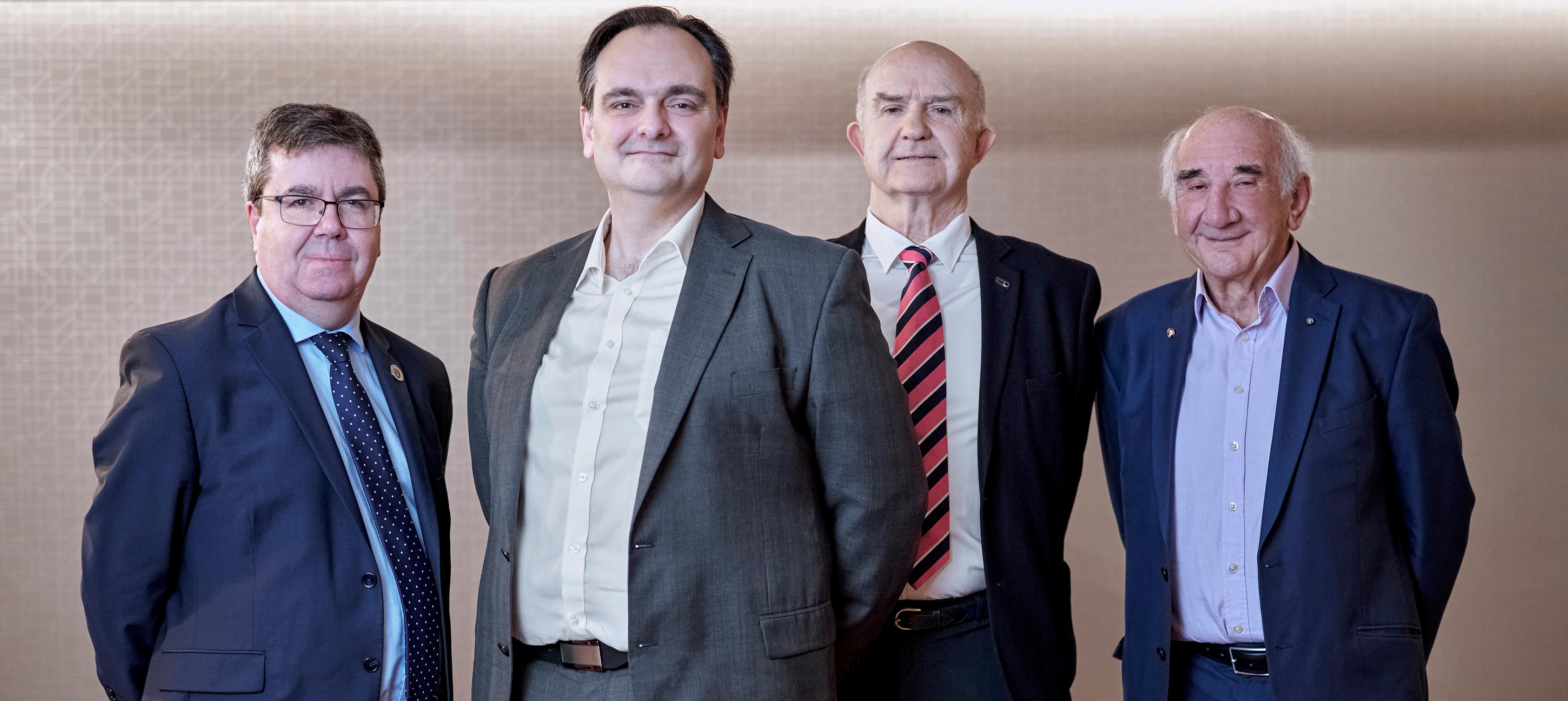
The recent funding for PulmoBioMed - a spinout company whose lead product for collecting breath samples could revolutionise diagnosis of a range of diseases - was led by the North East Venture Fund, supported by the European Regional Development Fund and managed by Mercia Ventures. The company has also secured a £700,000 grant from Innovate UK to help it demonstrate the benefits of its technology.
PulmoBioMed’s breath sampling technology offers a fast, non-invasive way to obtain fluid samples from the deep lung without contamination from other fluids in the mouth. Most sampling devices cannot distinguish between the two, resulting in inconclusive or misleading diagnosis, while other methods are highly invasive and cannot be performed frequently or the instrument used can suffer contamination from
the environment. These drawbacks can lead to delays with a patient’s diagnosis and subsequent treatment.
PulmoBioMed’s hand-held device, PBM-Hale™, captures the breath as the patient exhales. It then separates large aerosol droplets which come from the mouth from fine droplets which come from the deep lung. Clinical studies have shown that the new device provided uncontaminated deep lung samples in just two minutes which helped detect and quantify lung infections and inflammation in 100% of symptomatic cases. The PBM-Hale™ device is easy to use and over 40 times cheaper than endoscopy, an invasive technique where a tube is inserted into the lung which can result in a one in seven risk of injury.
PulmoBioMed was founded in 2020 by Professor Sterghios A. Moschos, a molecular
“BY HELPING CLINICIANS UNDERSTAND THEIR PATIENTS’ DISEASE AND SELECT TREATMENTS THAT WORK, PBM-HALE ™, HAS THE POTENTIAL TO TRANSFORM RESPIRATORY CARE.”
PROFESSOR
biologist with over 20 years’ experience. Professor Sterghios achieved international renown as leader of the Northumbria University research team that developed a point-of-need test for the Ebola virus disease in 2015 during the outbreak in West Africa. He is joined by a team of experts including Professor Sir Peter J. Barnes FRS, a world authority on airways disease, and Dr Huw Edwards, the founding CEO of the British In Vitro Diagnostics Association.
The company initially plans to target the US market and focus on asthma diagnosis, though the device is suitable for diagnosing other conditions including pneumonias. It could also improve outcomes for lung cancer patients by providing a better way to detect returning tumours and help identify the best treatments. The latest funding will enable the company to develop a cost-
MOSCHOS
effective manufacturing process to scale up production and register their product in the US. They also have plans to relocate to new premises in Newcastle city centre and create seven new jobs in the year ahead.
Professor Sterghios Moschos, founder and CEO, said: “PulmoBioMed was founded during the pandemic to address the need for reliable breathbased diagnostics. We have solved fundamental problems to enable quick and noninvasive deep lung sampling, with minimal training, and as frequently as necessary. Over 300 million asthma patients suffer slow diagnosis and millions of others are hospitalised every year with pneumonias that are impossible to diagnose with current tests. By helping clinicians understand their patient’s disease and select treatments that work, PBM-Hale ™, has the potential to transform respiratory care.”
Professor Andy Long, ViceChancellor and Chief Executive of Northumbria University, said PulmoBioMed’s technology has the potential to deliver enormous impact in healthcare on a global scale. “This investment success reflects the calibre of the University’s growing pipeline of intellectual property arising from our world-class research and highly entrepreneurial teams,” he added. “It further evidences our commitment to driving economic growth in the region, boosting the development of new businesses and supporting the creation of new high-quality jobs here in the North East.”
To find out more about how the University creates commercial opportunities and develops new intellectual properties (IP) Click the QR code.

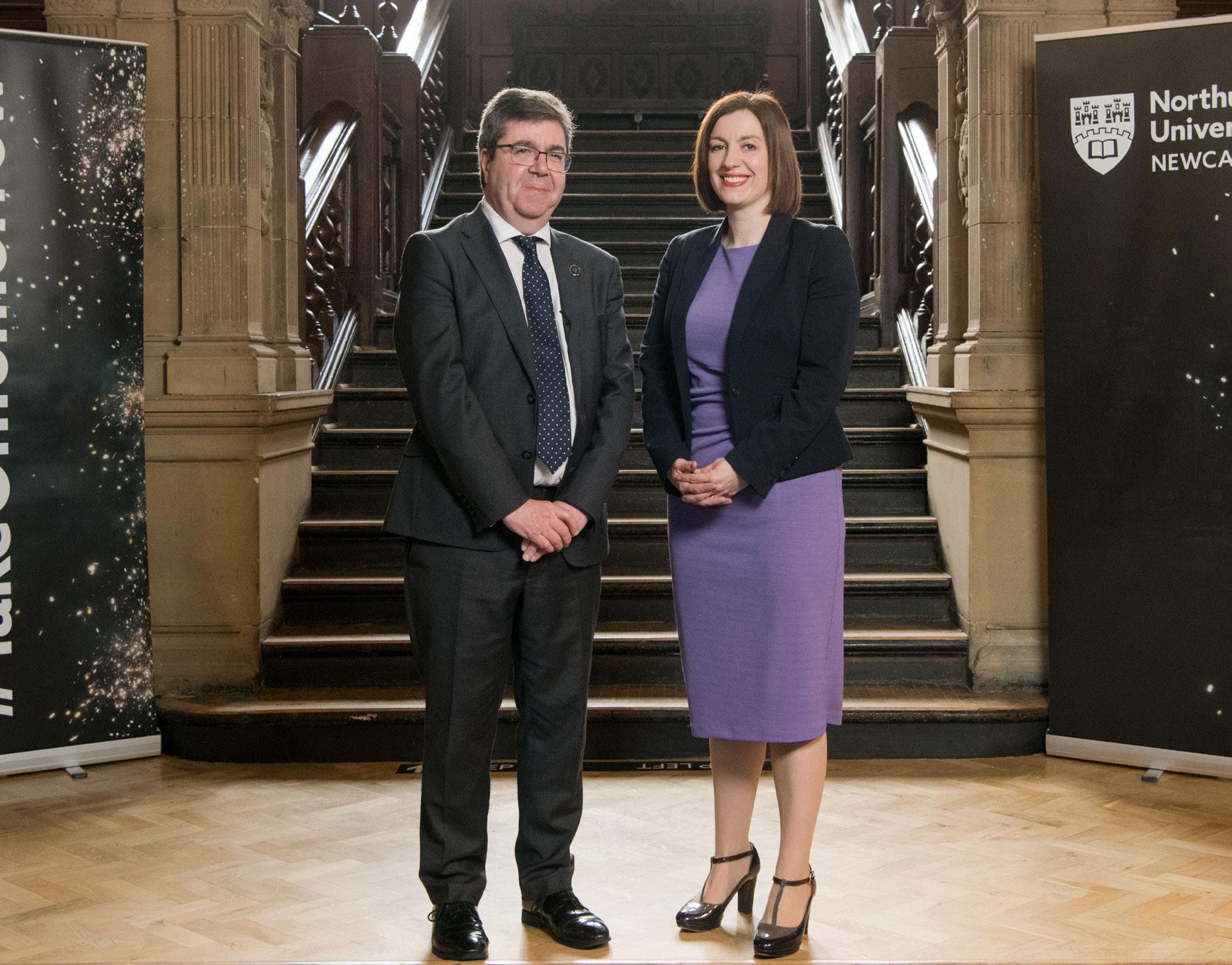
NORTHUMBRIA’S VICE-CHANCELLOR
PROFESSOR ANDY LONG MEETS
BRIDGET PHILLIPSON, SHADOW
EDUCATION MINISTER
The Shadow Secretary of State for Education, Bridget Phillipson MP, visited Northumbria to hear about the impact of its world leading research alongside the way in which the University is breaking down barriers to create more opportunities for people in the North East.
During the visit in February, Ms Phillipson met with a number of students who shared their experiences of studying at Northumbria, many of whom are first in their family to attend university. They talked about the academic, financial and wellbeing support that has enabled them to excel in their studies. Several of the students have since gone on to use their experience to undertake paid support roles at the University alongside their studies. Some of the roles on offer include Student Inclusion Consultants who, through their lived experience, work closely with staff across the University to address barriers and enhance the student experience. The Shadow Secretary went on to meet with some of Northumbria’s graduate entrepreneurs who have set up their own businesses with
support from the University’s student and graduate enterprise team – one of many services the University offers to students to help ensure their future success after they graduate.
While on campus, Ms Phillipson visited some of the University’s research facilities and talked to academics in the Faculty of Health and Life Sciences about the vital role the University plays in providing a pipeline of qualified and skilled graduates entering – and staying in – key professions such as nursing and social care.
The University recently announced a new Centre for Health and Social Equity, which is dedicated to tackling health and social inequalities in the region and beyond and to recruiting, developing and helping organisations retain highly skilled healthcare professionals.
Through the centre academics will work collaboratively with partners and communities to develop breakthrough solutions for health, social care, education, wellbeing and equity issues from a single central base in the heart of Newcastle.
She also visited the development site for the North East Space Skills and Technology Centre (NESST), a £50 million space skills, research and development centre set to transform the UK space industry, create over 350 jobs and inject over £260 million into the North East economy over the next 30 years.
As part of the visit, Ms Phillipson attended a roundtable event alongside university, civic and business leaders in the region to discuss how they can work together to help create more opportunities for people in
Northumbria University was shortlisted for four awards in the national Whatuni Student Choice Awards (WUSCAs) –including the coveted University of the Year.
Now in its 11th year, the WUSCAs is the only Higher Education awards ceremony in the UK where institutions are solely judged and reviewed by students across a variety of categories. The annual event is a celebration of the student voice and the hard work of higher education providers across the UK to deliver an exceptional student experience.
The WUSCAs collect reviews from more than 100 universities in the UK through a combination of online surveys and on-campus events. The shortlist presents the top 10 institutions for each category, as rated by their respective students. Owing to the reviews submitted by its students, Northumbria was shortlisted in four award categories including Facilities, Student Life, International and University of the Year.
Northumbria University was awarded University of the Year in the Times Higher Education Awards 2022 and was also named Research University of the Year and Modern University of the Year in a new league table published by the Daily Mail last year.
The University sits in the top 40 in the latest Guardian University Guide and Complete University Guides – adding to the University’s ever-growing list of achievements.
Click the QR code to discover more about studying at Northumbria.
the North East. Commenting on her visit, the Shadow Secretary of State for Education, Bridget Phillipson MP, said: “It was brilliant to see what’s going on at Northumbria University –everything from world leading research, space physics and the work that’s going on to support young people from disadvantaged backgrounds into university.
“The work that Northumbria is doing around investment, support for students and how that’s connected to jobs, industry and growth and our regional economy is fantastic. Our regional universities are absolutely central to the economy of the region, to creating jobs and prosperity. They are anchor institutions that drive so much of our growth.”

Professor Andy Long, ViceChancellor and Chief Executive of Northumbria University said: “Over the last 10 years, the university has been significantly increasing its research capabilities and this was a great opportunity to showcase both our real-world impact and the way it feeds into our education to make sure that our graduates are highly skilled and even more employable.”
Northumbria University is in the top 30 for the number of full-time UK graduates who go into skilled jobs and has regularly placed in the top 10 for graduate start-ups based on turnover.
Click the QR code to read the full story and watch a short video of Ms Phillipson’s recent visit.

Northumbria University recognised distinction across the arts, medicine, sport and business during its 2023 Newcastle campus winter congregations and 2024 London campus congregations.
Each year, honorary degrees are awarded to individuals who have obtained the very highest standards of scholarship, outstanding achievement, or distinction worthy of national or international recognition in their academic or professional field. One such individual is BAFTAnominated writer-director Clio Barnard who was awarded an honorary degree of Doctor of Letters. Clio is a British filmmaker who graduated from Newcastle Polytechnic – now Northumbria University – with a First Class BA (Hons) with distinction in Fine Art. Since then she has won widespread critical acclaim and multiple awards for her feature films, The Abour and The Selfish Giant. The latter premiered at the Cannes Film Festival and saw Clio nominated for the BAFTA Outstanding Debut Award in February 2011.
Through her continual questioning of the processes of bringing ‘reality’ to screen and focus on highlighting underrepresented and disadvantaged communities in her work, Clio is an inspirational and positive role model to students on Northumbria’s nationally renowned BA (Hons) Film course which has been ranked 2nd in the UK Guardian University League Table 2024.
Speaking about her honorary degree, Clio said: “It’s wonderful to be back and I feel incredibly pleased to be given this award. I’d like to thank Professor Gavin Butt, at Northumbria, whose recent work brought us into contact, enabling me to reconnect with the institution.”
Receiving an honorary degree of Doctor of Science was Howard Catton, Chief Executive Officer of the International Council of Nurses (ICN). Representing 27.9 million nurses across the world, Howard is a prominent voice for nursing globally, contributing to
the international development of policy in healthcare. Howard most notably initiated and cochaired the first ever State of the World’s Nursing Report in a partnership between the ICN and World Health Organisation (WHO). The report informed the development of WHO’s current global nursing strategy and has had a significant impact for the nursing profession.
Howard was a prominent figure throughout the Covid-19 pandemic, during which he called for psychological support for nurses. He has consistently advocated for the protection of jobs and resources as well as better investment into the profession.
Speaking about his honorary degree, Howard said: “I accept this award with gratitude on behalf of nurses who continue to deliver over and above what is expected of them, often in difficult and even dangerous situations. Nursing is the golden thread that runs through healthcare, and your show of appreciation of their efforts with this award is very welcome. Thank you.”
Also awarded an honorary degree of Doctor of Science was internationally successful football coach and former Northumbria University lecturer in Sport Science, John Herdman. After moving from the UK to New Zealand to kick-start his career in international football and becoming head coach of the country’s women’s team, John made the move to Canada, where he took over the Canadian women’s national football team, leading them to a gold medal finish at the 2011 Pan American Games and a bronze at the 2012 and 2016 Olympics.
John was then appointed as head coach of the Canadian men’s team, where they rose up the FIFA World Rankings,

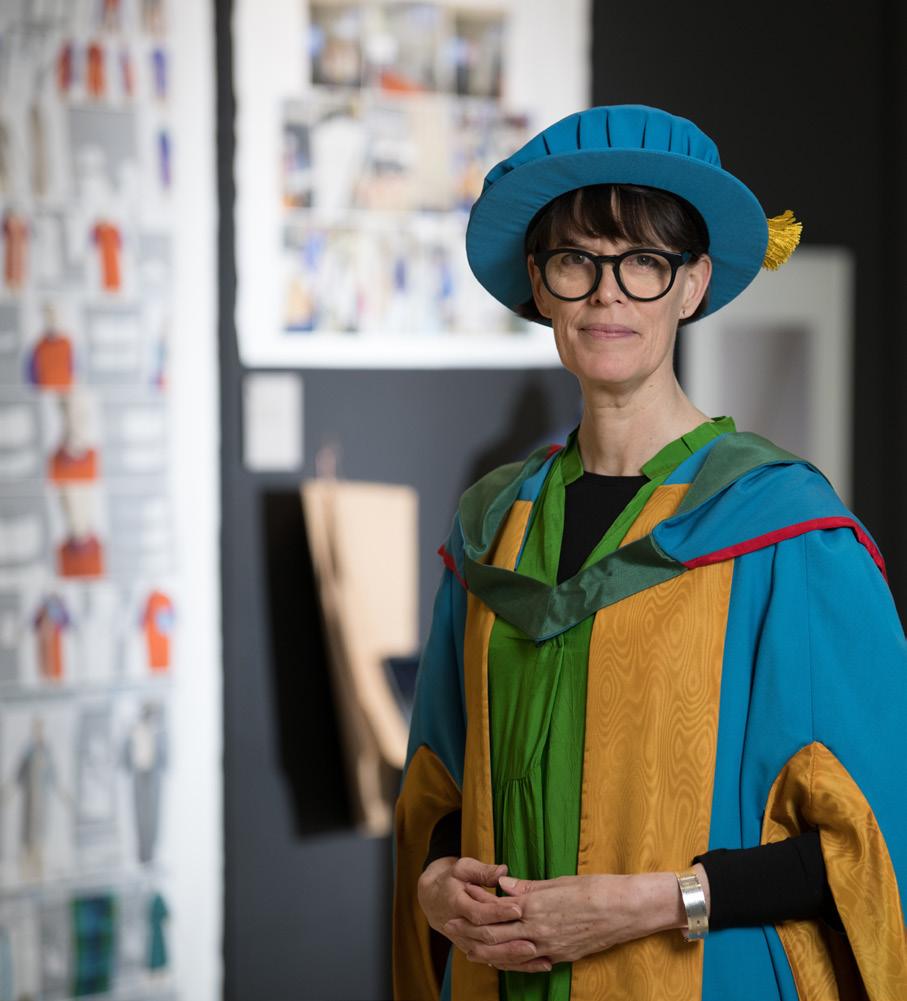
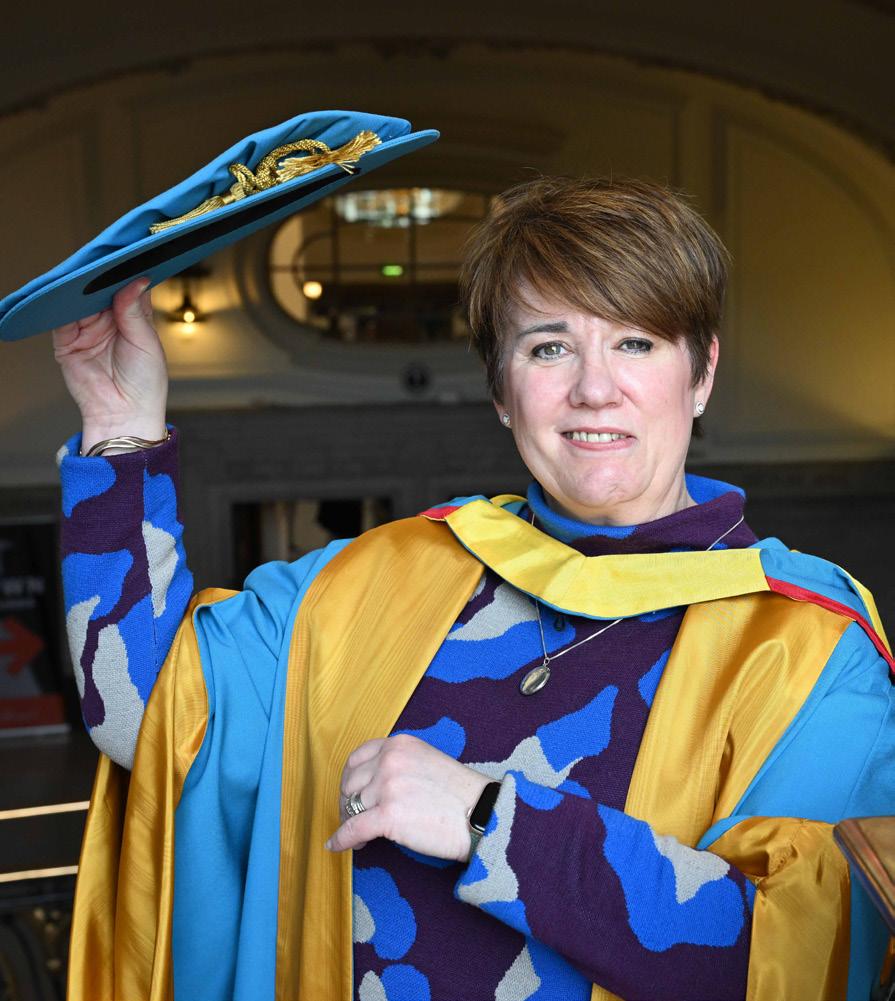
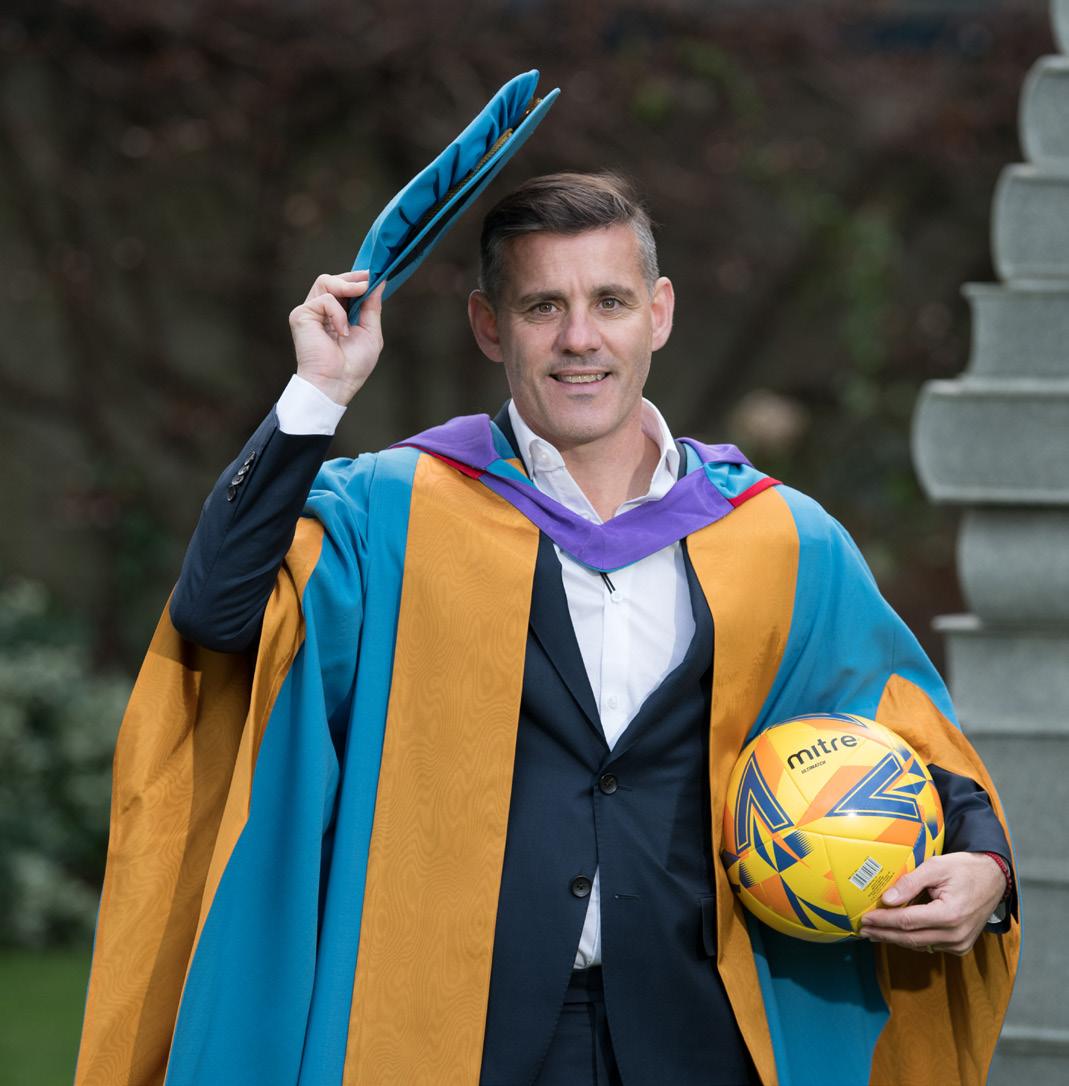
“I HOPE THIS RECOGNITION CAN INSPIRE OTHERS TO KEEP PUSHING BEYOND THE LIMITS OF THEIR POTENTIAL AND EXPECTATIONS OF OTHERS.”
qualifying for the 2022 World Cup – the first time Canada had been represented for 36 years.
Speaking about his honorary degree, John said: “I hope this recognition can inspire others to keep pushing beyond the limits of their potential and expectations of others.”
During Northumbria’s London campus congregations in April, Roisin Currie, Chief Executive Officer (CEO) of Greggs PLC, was awarded an honorary degree of Doctor of Civil Law in recognition of her outstanding contribution to business, her commitment to diversity in the workplace and
her support in creating positive futures for people leaving prison. Roisin is an advocate for improving social mobility, and was integral to establishing the Greggs Fresh Start programme. Through Fresh Start, candidates who might not normally apply through mainstream recruitment processes are encouraged and enabled to learn about the great opportunities at Greggs, including returning citizens and long-term unemployed. Greggs has been able to reach over 3,400 candidates, offer 170 placements and 210 jobs including 34 management roles through Fresh Start.
Roisin said: “It is a privilege to receive this honorary degree from Northumbria University. Through my role as an Advisory Board member at the University and welcoming a number of its graduates to Greggs over the years, I have experienced firsthand not only its excellence in teaching but also its dedication and contribution to improving social mobility and levelling up the region – a key passion of mine.”

World-leading research by North East universities to advance renewable energy technologies is set to accelerate, following an £11.5 million boost.
Renewable Energy Northeast Universities (ReNU) was established in 2019 as a regional centre for doctoral training. New funding from the Engineering and Physical Sciences Research Council (EPSRC), with additional partner contributions, will now enable Northumbria, Newcastle and Durham universities to further develop the centre and create ReNU+ which will help the UK government progress towards its Net Zero aims for a low carbon economy.
And with a focus on equality, diversity and inclusion, ReNU+ will also widen access to doctoral level training to those with non-traditional educational backgrounds. This will encourage those in underrepresented groups such as the unemployed, disabled, carers and military veterans to train as doctoral carbon champions - bringing new perspectives and lived experiences that are essential for an urgent and equitable transition to Net Zero.
The universities will also work closely with key partners across local government, industry and charities to support ReNU+, including Northumbrian Water, SSE – formerly Scottish and Southern Energy - Port of Tyne, the NHS, Newcastle City Council, North of Tyne Combined Authority and more. These collaborations include direct sponsorship of doctoral research projects and delivery of a high-skill training programme. Northumbrian Water Group, for example, will be co-funding up to four PhD studentships and facilitating site visits for postgraduate
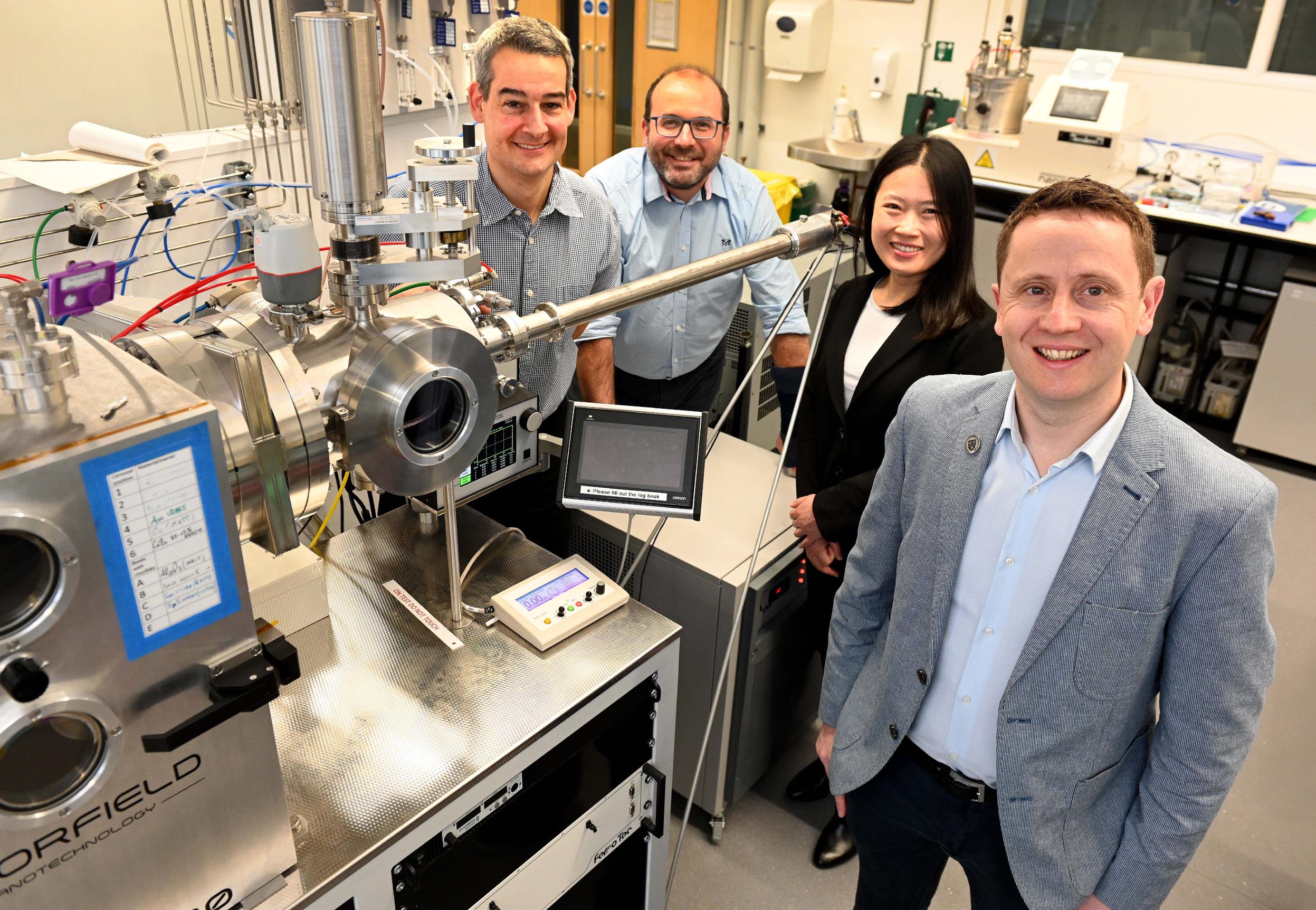
researchers to provide broader insight into water sector challenges.
Access to doctoral level training through ReNU+ will also be available, for the first time, to people who are not enrolled on a PhD programme, through training modules open to businesses in order to support the continuing professional development and upskilling of their staff.
Professor of Energy Innovation at Northumbria and ReNU+ lead, Neil Beattie, says there is a clear need for investment in renewable energy in the United Kingdom, explaining: “Locally generated renewable energy will provide the UK with increased energy security and critically important additions in electricity capacity to meet domestic and industrial demands. However, achieving Net Zero is a problem for all
of society, and by nature, therefore, needs an inclusive approach.
“ReNU+ is a transformative programme that will train a new generation of doctoral carbon champions who are characterised by scientific and engineering excellence and capable of interdisciplinary systemic thinking to accelerate Net Zero. They will meet critical needs in high-skill employment across industry, policy, education and government and convert key challenges in resilience and equity into economic opportunities for the United Kingdom.”
Professor Andy Long, ViceChancellor and Chief Executive of Northumbria University adds: “Social mobility and widening access are embedded in Northumbria University’s mission. We need to make much more of our country’s
“WITH ALMOST 700,000 NEW JOBS FORECAST IN THE UK IN THE LOW CARBON AND RENEWABLE ENERGY ECONOMY, IT IS VITAL THAT WE WORK TO CREATE FUTURE LEADERS FOR THIS SECTOR, AND IT IS EVEN MORE IMPORTANT THAT THESE LEADERS COME FROM DIVERSE AND INCLUSIVE BACKGROUNDS.”
existing talent pools through reskilling, upskilling and training. With almost 700,000 new jobs forecast in the UK in the low carbon and renewable energy economy, it is vital that we work to create future leaders for this sector, and it is even more important that these leaders come from diverse and inclusive backgrounds to ensure our transition to a low carbon economy is equitable and sustainable.
“We are delighted to be working in partnership with the universities of
Newcastle, and with industry and local government across the North East region, in this hugely important area of research.”
ReNU+ is one of a number of new centres for doctoral training announced by the Department for Science, Innovation and Technology as part of a UKwide investment totalling more than £1 billion.

Click the QR code to find out more about ReNU+.
“THE TEAM AT NORTHUMBRIA UNIVERSITY ARE LEADING THE WAY IN PROVIDING PLACEMENT HOURS WITH VR FOR A LARGE COHORT OF STUDENTS.”
JESSICA MCGAHAN, HEAD OF CUSTOMER SUCCESS, OXFORD MEDICAL SIMULATION
SIMULATED LEARNING USING VIRTUAL REALITY IS RECOGNISED AS AN EXAMPLE OF BEST PRACTICE IN NURSING EDUCATION
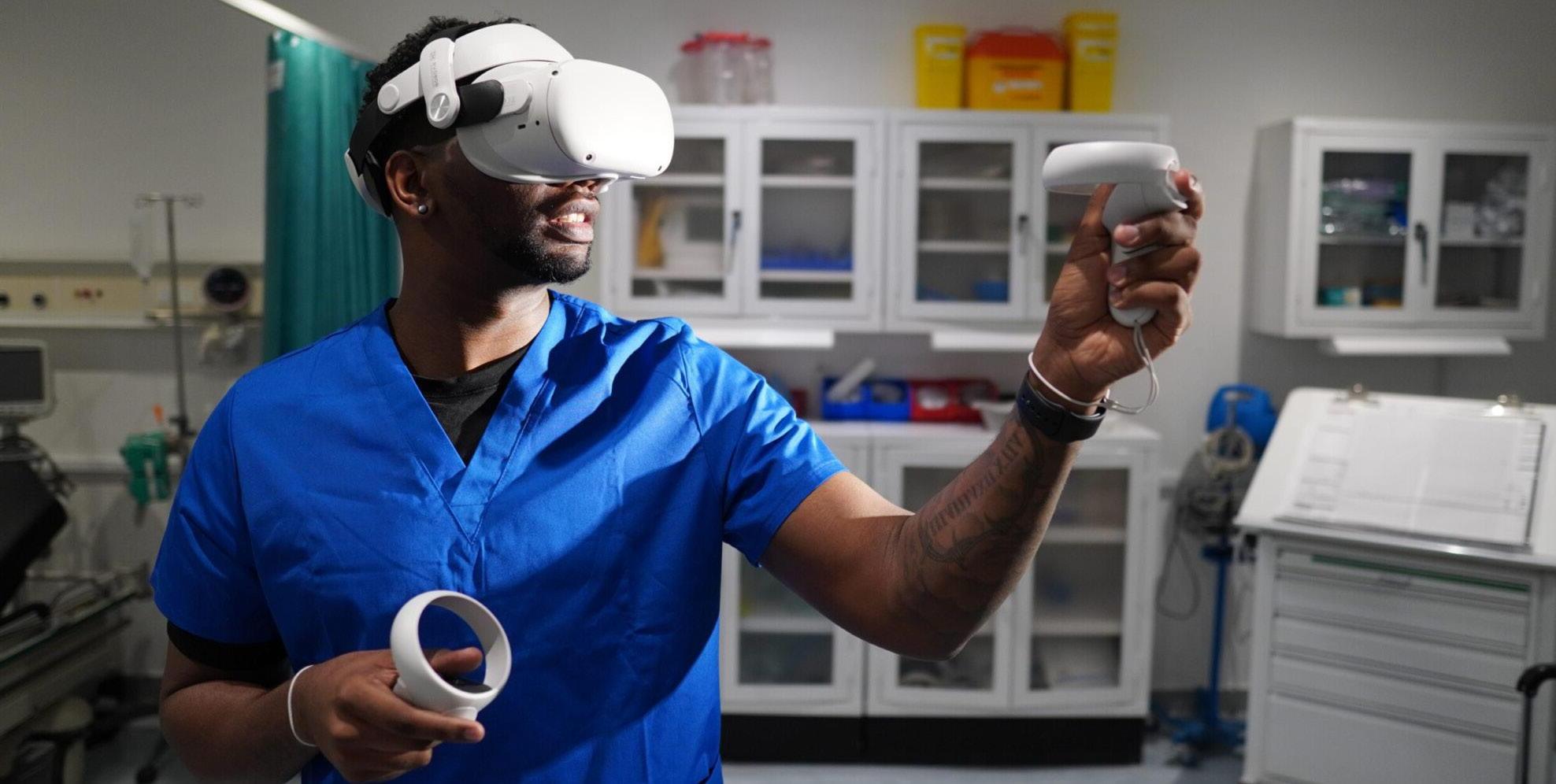
Northumbria University’s innovative use of virtual reality (VR) and simulation technologies in nursing education has been highlighted as an example of best practice in the UK.
A team from the University’s Department of Nursing, Midwifery and Health have designed a simulated practice placement programme for nursing students called SkillsFest. Five hundred second-year students across nursing, midwifery, operating department practice, physiotherapy and occupational therapy took part in a range of specialist simulation-based learning experiences, using new state-of-the-art virtual reality learning platforms.
In just one month, students were able to complete almost 13,000 simulation sessions across 31 different clinical cases, ranging from sepsis to respiratory distress with patients of all ages. All of the simulation scenarios were representative of situations which
students may face while dealing with real patients, and ensured they could display and rehearse skills needed to meet Nursing and Midwifery Council requirements. The programme was so successful that Northumbria University has now been recognised as a flagship institution by leading technology company Oxford Medical Simulation (OMS), which is now encouraging other universities to deliver simulation education in similar ways.
Jessica McGahan, Head of Customer Success at OMS said:
“The team at Northumbria University are leading the way in providing placement hours with VR for a large cohort of students. The nursing department have successfully embedded OMS
technologies into a multi-year programme, providing learners with the opportunity to manage care in a realistic, immersive, and safe clinical environment.”
The aim of using virtual reality and simulation technologies in nursing education is to provide students with the opportunity to develop and practice clinical skills in a safe environment on campus before they go out to placement in hospitals and care settings. Demand for simulation-based education has increased significantly in recent years, particularly after student placements were interrupted during the pandemic.
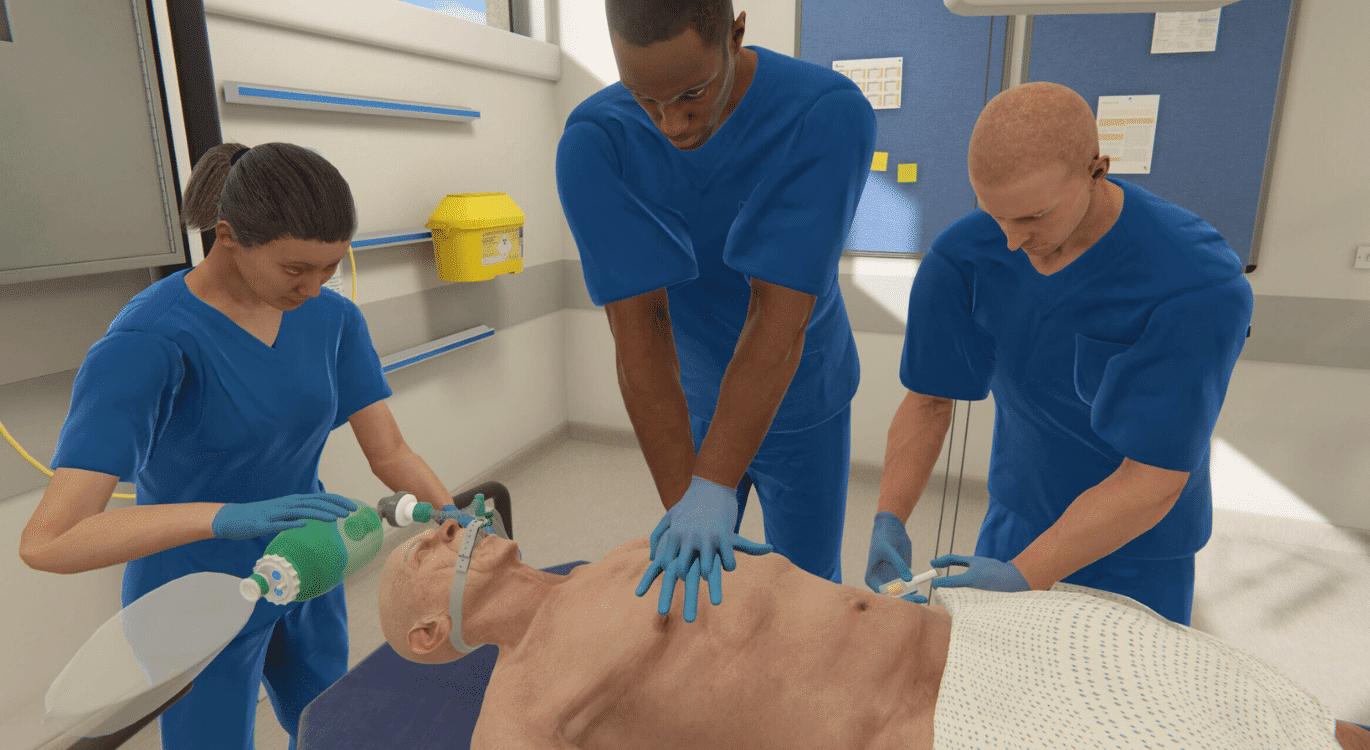
Experts in simulated learning practice created the programme after securing an award of £300,000 from Health Education England. They worked with students and external partners, including local NHS Trusts and the Nursing and Midwifery Council to find new ways to use simulation and immersive technologies to support students on healthcare programmes.
Barbara Davies, Associate Professor in Nursing at Northumbria University, led the team. She explained: “One of the greatest benefits of simulationbased education is that it affords opportunities to practice and rehearse skills in situations that faithfully replicate key features of the real-world environment.
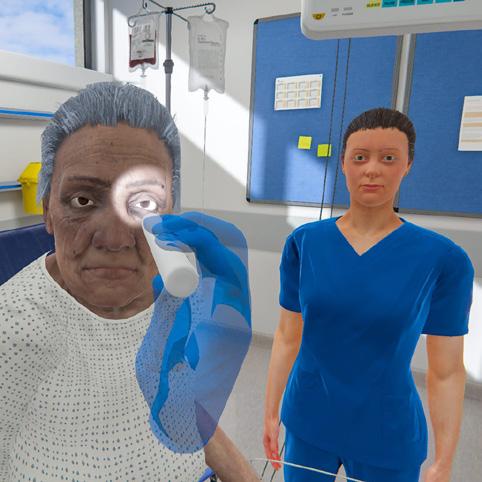
“Oxford Medical Simulation were so impressed with the way we collaborated with external partners to create the programme, and with the number of students who took part, that they are now championing Northumbria University as an example of innovative practice for other universities to learn from.”
Dr Claire Ford, Assistant Professor for Pre-Registration Adult Nursing, added: “Feedback from the students and partners who took part in our pilot programme was
overwhelmingly positive and has led to this programme becoming embedded into the undergraduate curriculum. Next year it will also be expanded into the master’s curriculum too.
“We are exceptionally proud of our innovation and we believe that we have developed a high-quality model of simulated practice learning that we are immensely proud to share. We are delighted to be recognised as a centre of excellence in simulation-based education.”
Northumbria University is one of the largest centres for healthcare professional education in the North of England, with a dedication to reducing health and social inequalities, contributing to the regional and national workforce and improving social, economic and health outcomes for the most marginalised in society. Through its new Centre for Health and Social Equity, known as CHASE, researchers will be delivering world-leading health and social equity research and creating innovative, evidencebased policies and data-driven solutions to bring impactful change across the region, the UK and globally.
Click the QR code to discover more about Nursing, Midwifery and Health courses at Northumbria.

Around 70 million people worldwide live with glaucoma – a condition which can lead to sight loss and even blindness –but new research from Northumbria University could change the way it is diagnosed.
Glaucoma is a complicated disease which develops over time. It occurs when the optic nerve that connects the eye to the brain becomes damaged, usually by a build-up of fluid in the front part of the eye. This increases pressure inside the eye, known as intraocular pressure which, in turn, increases the risk of developing glaucoma. As most people experience no symptoms in its early stages, glaucoma is often only picked up during routine eye tests, by which time lasting damage may already have occurred. However, a new technology from Northumbria University could lead to a transformation in the diagnoses of the disease. Researchers have developed a new contact lens containing microsensors which can monitor changes in intraocular pressure. Unlike a traditional examination where a measurement is taken during a short appointment, the new lenses are worn for several hours, giving more accurate readings. A patient can go about their day as normal while the lenses record measurements which are sent to a doctor for analysis when the test period is complete. Working with academics at Boğaziçi University in Istanbul, Professor Hamdi Torun of Northumbria’s Department

of Mathematics, Physics and Electrical Engineering has successfully trialled the contact lenses on a small group of patients and will work with a larger group of participants this year. The researchers are so confident in their new technology that they have formed a spin-off company, Glakolens, and plan for their lenses to be commercially available soon.
Professor Torun explained: “Intraocular pressure can vary greatly over a 24-hour period, so it is important to monitor the patient either at intervals
or ideally continuously for a whole day to get the best insight into the health of their eyes.”
As well as diagnosing glaucoma, there is also potential for the lenses to be used to detect other health conditions by measuring glucose, lactic acid and other molecules present in the eye.
Professor Torun added: “We believe this technology has huge potential and could not only save the sight of patients in the early stages of glaucoma but also provide early diagnosis of other diseases in future.”
“WE BELIEVE THIS TECHNOLOGY HAS HUGE POTENTIAL AND COULD NOT ONLY SAVE THE SIGHT OF PATIENTS IN THE EARLY STAGES OF GLAUCOMA BUT ALSO PROVIDE EARLY DIAGNOSIS OF OTHER DISEASES IN FUTURE.”
HAMDI TORUN
The GlakoLens is another example of how researchers at Northumbria are developing digital technologies for healthcare which improve people’s quality of life. Through the University’s Computerised Society and Digital Citizens research group, academics have been working on a range of innovations in healthcare, including a wearable Cue Band for people with Parkinson’s disease to prompt them to swallow at regular intervals. As the part of the brain which prompts
the automatic swallowing response can be impacted by Parkinson’s, people can find it difficult to swallow, leading to a pooling of saliva which can result in drooling or even choking.
Click the QR code for more information on the work of the Computerised Society and Digital Citizens researchers.

The Conversation is a collaboration between news editors and academics to provide informed news analysis and commentary that’s free to read and republish.
At Northumbria, our academics have been working with The Conversation to produce independent, quality current affairs journalism on some of the latest topics to hit the news.
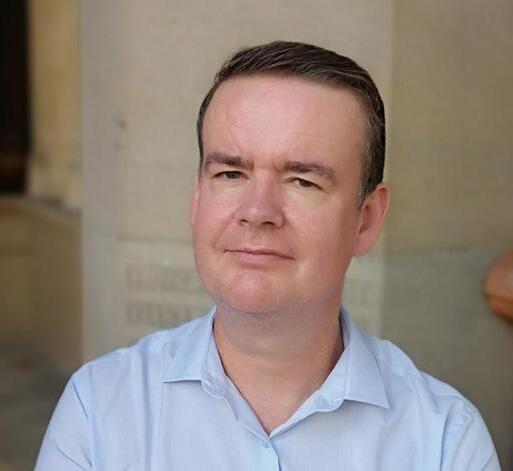


How music heals us, even when it’s sad – by a neuroscientist leading a new study of musical therapy.
There is a renewed fascination with the memory-stimulating and healing powers of music. Leigh Riby, Professor of Cognitive Neuroscience, discusses the recent breakthrough in research which suggests that music – happy or sad – has therapeutic healing powers linked with emotional recognition and brain re-engagement.
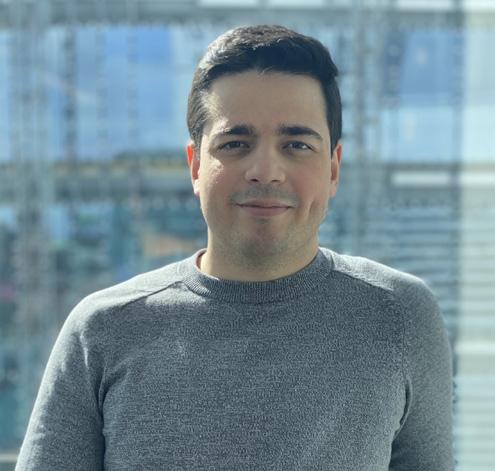


Russia and the Taliban: here’s why Putin wants to get closer to Afghanistan’s current rulers.
Russia is currently considering taking the Taliban off its list of terrorist organisations, officials have indicated. Intigam Mamedov, Postdoctoral research fellow in Social Sciences at Northumbria University, discusses Russia’s relationship building.



Building on the greenbelt is central to solving the housing crisis –just look at how the edges of cities have changed.
Cameron McEwan, Associate Professor in Architecture at Northumbria and Andreas Lechner, Associate Professor at Graz University of Technology in Austria, focus their research on the urban-nature divide, providing a potential solution to building on the greenbelt to solve the housing crisis.


If you have a great idea for an article, please email media.communications@northumbria.ac.uk

The rising flood of space junk is a risk to us on Earth and governments are on the hook.
Dr Thomas Cheney, Vice-Chancellor’s Research Fellow and Assistant Professor at Northumbria Law School, discusses the implications of space junk after a piece of hardware from the International Space Station crashed through the roof and floor of a man’s home in Florida.



Four reforms to stop English councils from going bankrupt. England’s councils are in serious financial trouble. Kevin Muldoon-Smith, Associate Professor at Northumbria University and Mark Sandford, Honorary Professor at the University of Bristol discuss their study-led proposals for improving councils’ financial resilience.
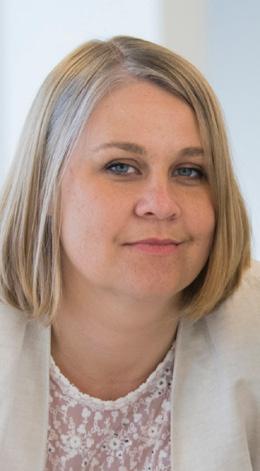

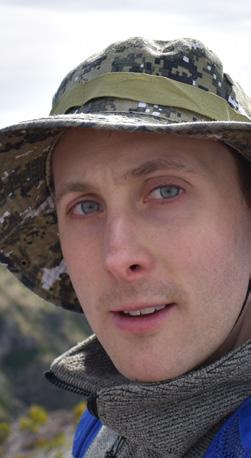

Sycamore Gap: what the long life of a single tree can tell us about centuries of change.
Only a few trees could be rightly labelled as world-famous. The tree at Sycamore Gap, on Hadrian’s Wall, was one of them. Professor Bronwen Whitney and Associate Professor Matthew Pound, from Geography and Environmental Sciences, examine Sycamore Gap’s legacy and how a single tree symbolised our relationship with the Northumberland landscape.

Having spearheaded plans for the development of Northumbria’s new North East Space Skills and Technology (NESST) Centre, Professor John Woodward discusses the importance of space research and the future of the space industry in the North East and beyond.
When the stars align, great things can happen. In the case of NESST, two stars came together: Northumbria’s vision for developing excellence in space research to tackle global challenges, and the significant opportunities for regional, national and international economies and societies presented by the space sector. The global space economy is projected to grow exponentially, and the UK Government’s
National Space Strategy sets out a vision to build one of the most innovative and attractive space economies in the world. This forms the basis for the creation of NESST: the need to develop new technologies and undertake research to protect our planet; the need to grow our local space economy, supporting new commercial opportunities and talent; and the need to open up access to new global space markets for UK companies.
Supported by the UK Space Agency and Lockheed Martin UK Space,
NESST will be a game-changer for the research Northumbria carries out and the way in which the University can support and develop the regional and national space sector. For some time, the space economy in the UK has been based around one or two very large space organisations. Now, through the establishment of NESST, the UK will benefit from having another major industry player, Lockheed Martin UK Space, which is committed to helping the UK to grow as a space nation. NESST will supercharge the space ecosystem enabling businesses in the North East and across the country to gain access to international markets and ultimately launch products into space. It sends a clear signal that the UK space economy is a brilliant sector to invest in, one which is vibrant and is growing. There are very few Research and Development facilities like NESST based on university campuses, and while Northumbria is deeply rooted in the North East, NESST also helps to put us on the map globally. It will provide opportunities for international academic collaboration with the
healthcare, the potential technological advancements from space experiments are vast. The breadth of interdisciplinary space research at Northumbria is significant, from research into laser communications, satellite engineering, space law, astronaut health and extraterrestrial environments for example –NESST will enable us to expand our work further and serve as a real hub for collaboration.
How does NESST align with the University’s vision for the future?
“NESST IS A FANTASTIC EXEMPLAR OF NORTHUMBRIA’S MISSION TO OPEN UP OPPORTUNITIES TO CHANGE LIVES THROUGH EDUCATION AND RESEARCH”
very best universities in the world and give confidence to large companies that we are worldleading and that we’re open for business.
Why is space research important?
The impact space already has on our everyday lives is vast. Global communications, for example, are, and will continue to be, dependent upon space: everything we use our mobile phones for, planning routes through car satnavs and even tracking a parcel on Amazon, all use satellite technology. Alongside this, of course, are opportunities for potential new discoveries in the solar system that could support the future of humanity and the resources we require. The future of energy security is also set to revolve around space-based renewables; scientists, including academics at Northumbria, are researching ways to draw energy from space to Earth to help build a secure, resilient energy supply anywhere on the planet. From protecting our world to improving
NESST supports all three of Northumbria’s interconnected strategic ambitions. First, the centre will, without doubt, be a world-leading research facility through which we will continue to create new knowledge. It will help to drive research excellence, enriching our taught programmes and allowing an exceptional group of academics to develop further within their fields of expertise. Second, Northumbria seeks to provide experiential learning for all our students to enhance their studies and boost student outcomes after graduation. By attracting companies and businesses into the University, NESST will provide live projects and placement opportunities for students on a variety of degree programmes, such as Physics, Geography and Environmental Sciences, and Mathematics. This is part of our strategic vision for transformative education, to upskill our student community so that they are equipped for the world of work. Northumbria also retains a strong social mobility mission and by working with our partners on the establishment of NESST, we will foster an important talent pipeline for the region. We’ll be going into local schools to educate younger students on the opportunities within the Science, Technology, Engineering, and Mathematics (STEM) field, as well as working with local colleges to support and inspire students thinking of coming to university. In addition to all of this, we are developing new programmes that meet the future demands of the space industry – in the North East alone we estimate that in the next 10 years we will need up to 7,000 additional fully trained engineers and space experts in a variety of emerging fields. From traditional undergraduate and postgraduate degree programmes to Continuing Professional Development (CPD) courses and degree apprenticeships, we will support more students from all backgrounds in the region and
PROFESSOR
JOHN WOODWARD
beyond to access training and education in the space industry, in turn empowering them to work in the technological areas of the future. In summary, NESST is a fantastic exemplar of Northumbria’s mission to open up opportunities to change lives through education and research.
What aspect of NESST are you most excited about?
The rocket we plan to put in the foyer! Of course, while that will indeed be an inspiring sight as you enter the building, for me, NESST is a clear signal of the strength of Northumbria as an institution and the embodiment of what can be achieved through focused ambition. Northumbria is a challenger University and NESST is further proof of that. I am also excited by the opportunity NESST provides to genuinely empower and regenerate the region. We used to build ships on the Tyne and now we are going to build spaceships – it’s the link from the North East’s industrial past to its industrial future that inspires me. I was born in this region and brought up in the County Durham coalfields when we were digging coal out of the ground and that was our energy source. Through NESST we’re going to be launching satellites into space and developing the future of spacebased renewable energy. That’s some journey for the region.
Turn to page 17 to find out more about the vast array of space research being carried out at Northumbria.
Click the QR code to find out more about NESST.

A training partnership, including Northumbria University, has secured over £28 million in funding to continue training the next generation of social scientists, playing a leading role in the economic and social development of the North East of England and Northern Ireland.
“AS A GENUINE RESEARCH-INTENSIVE UNIVERSITY, NORTHUMBRIA WILL LEAD ACROSS THE CONSORTIUM ON RESEARCH-SUPERVISOR DEVELOPMENT – BUILDING UPON AND SHARING OUR GRADUATE SCHOOL’S RECOGNISED EXCELLENCE IN OUR OWN INTERNAL SUPERVISOR DEVELOPMENT INITIATIVES.”
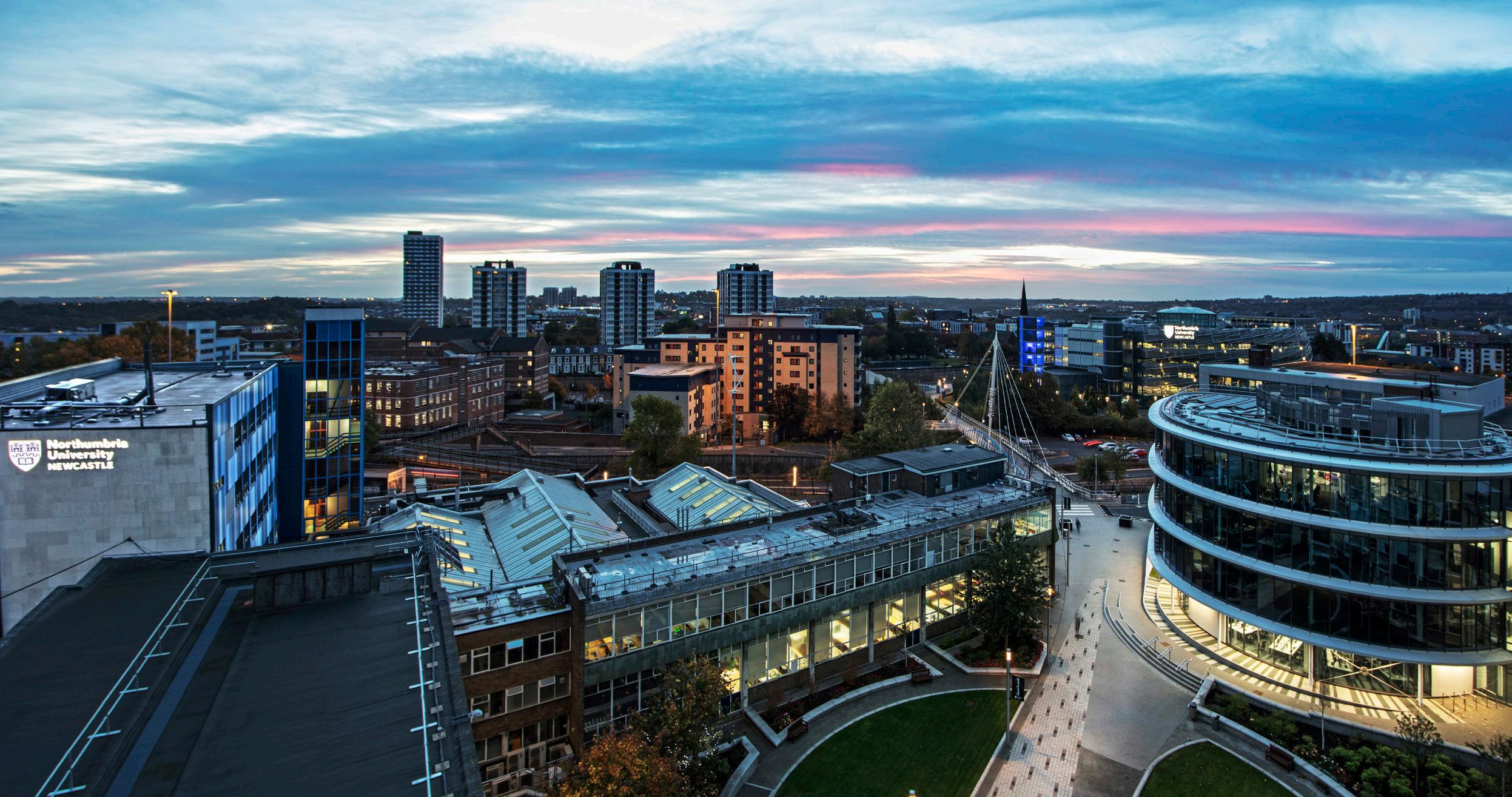
The Northern Ireland and North East Doctoral Training Partnership (NINE DTP), which was first established in 2017, is led by Durham University and brings together Northumbria, Newcastle, Sunderland, Teesside, Queen’s Belfast and Ulster universities.
The funding includes £20 million from the Economic and Social Research Council (ESRC), together with £8.5 million in match funding from the partner universities. Over the next five years funding will support 55 PhD places per year in 18 subject-specific training pathways and interdisciplinary areas, across the full breadth of social science research and the
seven institutions.
The partnership covers the full range of social science subjects including sociology, criminology, international relations, and politics. It is home to research that explores challenging and societally important questions, with a strength in examining issues of regional importance to North East England and Northern Ireland. The new funding will also allow additional study opportunities in three other areas; criminology, policing, and prisons; environment, climate, and sustainability; and sport and society.
Research examples include regional inequalities in educational
provision, sexual violence within prisons, and the role of physical activity in the wellbeing of young people with disabilities.
From 2024, all students will be expected to complete a 12-week placement, and the length of a standard studentship is being increased from three years to three and a half years, creating new opportunities for students to put their research into practice beyond academia.
Dr Mick Hill, Associate Professor for Health and Social Research and Northumbria Academic Director for NINE DTP, said: “NINE DTP affords life changing opportunities to the brightest and best of our

supervisor development initiatives.”
social science students – no matter what their background.
“Recognised as an internationally leading consortium, NINE attracts social science students with the highest potential, who are then provided with the best facilities, financial support, and mentoring to allow them to grow from postgraduate students to early career researchers and beyond.
“As a genuine researchintensive university, Northumbria will lead across the consortium on researchsupervisor development –building upon and sharing our Graduate School’s recognised excellence in our own internal
Speaking about the new funding, Durham University Professor Philip Steinberg, who directs NINE DTP, said: “NINE DTP is a collaborative and energetic partnership drawing on the collective skills and resources of seven universities to deliver outstanding training, supervision, and support to the next generation of social scientists, regardless of their social or economic backgrounds, via an inclusive, world-class postgraduate research training programme in the social sciences.”
Stian Westlake, ESRC Executive Chair, added; “This redesigned and expanded doctoral training opportunity will enhance the experience for PhD students and boost the UK’s capability.”
Click the QR code to discover more about Social Sciences research at Northumbria.

It has the potential to transform the performance and sustainability of everything from the cars we drive to the way we clean our drinking water, however, the ‘wonder material’ graphene is still rarely used in everyday life due to the difficulties and expense of manufacturing it commercially.
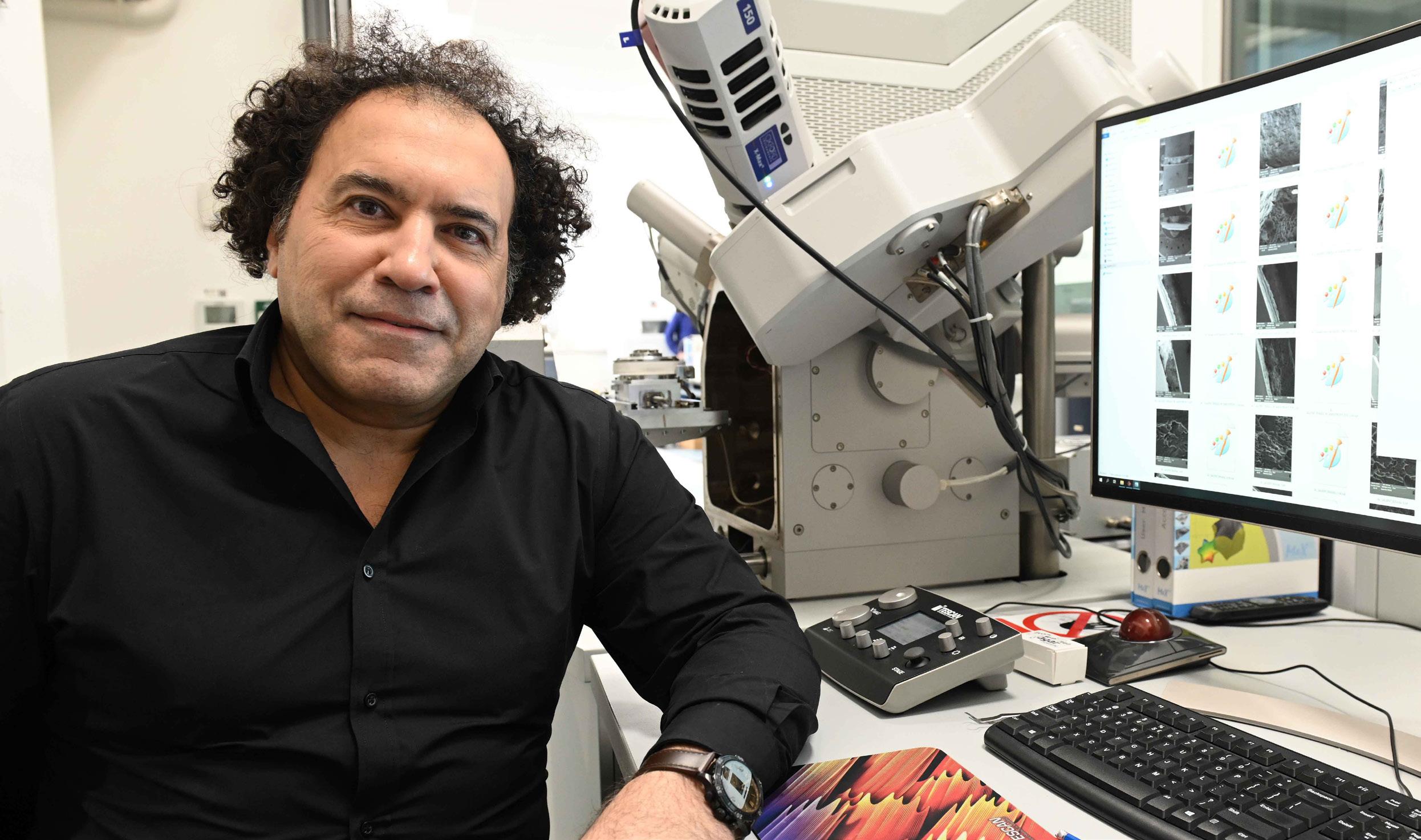
But that could soon change thanks to a €9 million EUfunded project in which Ahmed Elmarakbi, Professor of Automotive Composites at Northumbria University, is playing a leading role.
The Pioneering Sustainable Graphene-based Solutions for Environmental Challenges project, known as GIANCE, brings together major international partners such as Stellantis and Boeing, with research and technology organisations and small and medium enterprises (SMEs) from across Europe. Professor Elmarakbi has been appointed scientific coordinator for the three-year project, as well as technical board and steering committee chairman.
The project partners will work together to explore the potential of graphene, including wear, corrosion, high temperature, impact and chemical and fire resistance,
as well as carrying out tests on hardness, structural health monitoring, and ultra-low friction surfaces. Research will focus on examining how graphene could be applied across different sectors, including automotive, aerospace, energy (hydrogen economy), and water treatment.
The GIANCE project follows on from the Graphene Flagship – a decade-long Horizon Europefunded initiative which brought together nearly 170 academic and industrial partners across 21 countries to advance research and development into the use of graphene. The project has received funding from the European Union’s Horizon Europe research and innovation programme and UKRI.
Having previously led the Composites for Automotive
work stream of the Graphene Flagship for four years, Professor Elmarakbi will now oversee the development of a prototype graphene-based composite as part of the new GIANCE project.
He explained: “By bringing together partners across Europe, GIANCE will create a robust and connected innovation ecosystem by stimulating collaboration,

setting up networks, building credibility for materials development, upscaling technologies and tackling environmental challenges within the three interlinked project priority sectors –transport, energy and water.
Discovered in 2004, graphene is made of a single layer of carbon atoms bonded together in a hexagonal, sheetlike structure.
It is one million times thinner than human hair and 200 times stronger than steel.
The only way most of us currently encounter graphene is through pencils – with the mineral graphite, which is used in pencil nibs, made up of hundreds of thousands of layers of graphene.
“THIS IS AN EXCELLENT EXAMPLE OF HOW NORTHUMBRIA UNIVERSITY IS LEADING THE WAY WHEN IT COMES TO INNOVATIVE RESEARCH IN AREAS WHICH WILL HAVE A REAL IMPACT ON ALL OUR LIVES.”
PROFESSOR JOHN WOODWARD
“Northumbria University’s involvement in this large-scale Horizon Europe project is a significant opportunity and responsibility. It signifies a substantial opportunity to make a meaningful contribution to addressing industry-specific challenges, advancing research, and fostering innovation. It also carries a responsibility to effectively bridge the gap between academia and industry, ultimately benefiting both sectors and society as a whole.”
Professor John Woodward, Pro Vice-Chancellor for International at Northumbria, said the University’s involvement in GIANCE was testament to its reputation for research in advanced
manufacturing technology. He said: “This is a major European Union-funded project which has the potential to change the way we live, transforming the automotive, aerospace, energy, and water industries, making them more efficient and sustainable. As the academic lead in this project, this is an excellent example of how Northumbria University is leading the way when it comes to innovative research in areas which will have a real impact on all our lives.”
Click the QR code to discover more about the GIANCE project.


Rising stars from Northumbria University have won the award for Best Student Drama at the prestigious Royal Television Society Awards for the North East and Borders.
A group of talented students and graduates were honoured for their work on the suspenseful, dark drama SWINE, at a ceremony attended by Vera’s Brenda Blethyn and author Ann Cleeves.
The short film was created and co-produced as part of a dissertation project by Film graduates Ben Smith and Nathan Goodison, with support from current third year student, Chiara Ingravallo, and a wider team involved in lighting, sound and editing.
Nathan, who attended the ceremony and accepted the award on behalf of the team, said: “It’s an incredible honour for our dissertation film to receive this award from the Royal Television Society. Ben and I are so thankful to all the amazing crew and actors who made the project a reality along with the fantastic Northumbria Film tutors such as James MacDonald, whose guidance and expertise was invaluable to our production.
“The hands-on learning and practical experience using industry standard equipment has been incredible and is just one of the reasons why the course at Northumbria is among the best in the UK for film, production and photography.”
Chiara, who supported the film as sound designer during the second year of her studies, said: “This win was totally unexpected, but I am so proud of the whole team. I’m currently working on my own dissertation film and this has really motivated me to keep pushing to make it the best it can be. The whole experience has been the most incredible opportunity.”
As well as co-producing SWINE, Ben also took on the roles of
writer and director, while Nathan was director of photography.
Chiara led on sound design with graduates Gareth Matthews as sound recordist, Louis Wild as composer, Chris Anstee as editor, Matthew Walters as assistant producer and Dexter Johnson on lighting.
The team also had support from graduates Laura Moscrop, who has already gone on to work as a camera assistant with BBC Studios and Ariadne Vessaoker, who now works as an assistant producer for video agency Ether/Awe. SWINE was shortlisted for recognition alongside another film directed by Northumbria graduate, Michal Špitálský. Spitalsky’s The Garden of Eden: Imrich’s last years of gardening was

in the running for Best Student Documentary category.
Cecilia Stenbom, Assistant Professor in Film at the University, attended the Awards and said it was a proud moment for all involved. Northumbria Professor of 21st-century writing and publishing Katy Shaw, who is also Director of the Arts and Humanities Research Council (AHRC) Creative Communities programme, was on hand to present one of the awards.
Assistant Professor Robert Jefferson, Programme Leader for Film at Northumbria, said: “Many of our students go on to become leading lights in the film and TV industry, and winning awards like this helps enormously as they work
to build their profiles in the industry.
“Anyone who sees SWINE will recognise it is easily comparable to dramas with much bigger budgets and resources, so huge congratulations should go to all involved.”
Northumbria University is ranked second in the UK for film, production and photography in the 2024 Guardian University League Table.
Click the QR code to find out more about studying Film and TV Production BA (Hons) at Northumbria University.


“BLACK HISTORY IS BRITISH HISTORY AND BRITISH HISTORY IS BLACK HISTORY. THEY ARE COMPLETELY INTERTWINED.”
MAY SUMBWANYAMBE
May Sumbwanyambe, Assistant Professor in Humanities at Northumbria University, is celebrating special recognition from the UK Theatre Awards for his production –Enough of Him.
Exploring the true story of Joseph Knight, an African man who famously freed himself through the Scottish courts in the late 18th century after being enslaved by a plantation owner in Scotland, May’s play received the award for ‘Best New Play’ at the 2023 UK Theatre Awards.
The Times theatre critic Allan Radcliffe described the production, which was written by May and produced by National Theatre of Scotland in 2020, as “gripping” and “unsettling”. It’s largely based on a legal battle, but rather than a courtroom drama the production’s main focus is on the experience of Joseph Knight and the question of whether he
will ever be truly free.
“As a country, we are educated on the part we played towards ending slavery, but we aren’t always taught about how we contributed to its existence,” said May, talking about the wider themes of the play.



“Enough of Him makes the history of black people in the UK more visible. Black history is British history and British history is Black history. They are completely intertwined.” May, who teaches on the Creative Writing MA and English Literature and Creative
Writing BA (Hons) courses at Northumbria, also won praise at the 2023 Critics’ Awards for Theatre in Scotland, where Enough of Him again won Best New Play in addition to Best Production. He is currently working on a new play as part of the Ephemera and writing about war in Britain, 1914 to the present project, funded by the Arts and Humanities Research Council.
This project will explore small, portable items linked to the First World War – otherwise referred to as ephemera –to help discover a clearer
understanding of the past. May’s stage play will draw on ephemera relating to Black British participants in the war. It will explore the lives of Black people in Scotland during the period 1919 – 1939 as well as working class white women – both of whom are fighting against patriarchal structures.
To find out more about Enough of Him and to watch the official trailer, visit the National Theatre Scotland website by clicking the QR code.


Researchers from four universities, including Northumbria, have found a new way to simplify the structure of a flat light-emitting technology, which could lead to more efficient and sustainable television screens.
OLEDs (Organic Light-Emitting Diodes) are light sources used in a wide variety of electronics, including smartphone screens and other display screens and can be more efficient than other light-emitting technologies, resulting in better screen quality and brightness. Although OLED television screens have vivid picture quality, they also have drawbacks including costing more and comparatively shorter lifespans. In OLED displays, screen pixels are composed of three different coloured subpixels – red, green and blue – that light up at different intensities to create different colours. However, the subpixels that emit blue light are the least stable and can be susceptible
to screen ‘burn-in’, which can discolour the screen and ruin viewing quality. An OLED is built like a sandwich, with organic semiconductor layers between two electrodes. In the middle of the stack is the emissive layer, which lights up when powered with electricity. Electrical energy goes into the molecules, which then release this extra energy as light. An ideal OLED turns most of the electrical energy into light, but sometimes the energy gets diverted and degrades the structure of the OLED. This is especially a problem with blue light and reduces both the OLED efficiency and lifetime.
In a paper published in Nature Materials, a team of researchers
from Northumbria, Cambridge, Imperial and Loughborough universities have created a new design that overcomes these issues and may lead to simpler, less expensive systems with purer and more stable blue light. Their findings could lead to TV and smartphone screens using less energy in the future, making them more efficient and sustainable.
Dr Marc Etherington, Assistant Professor in Molecular Photophysics at Northumbria University’s Department of Mathematics, Physics and Electrical Engineering, is part of the research team. His findings were key to this study, helping the team design a new light-emitting molecule that
“AS WE ALL WORK TOWARDS NET ZERO TARGETS, THIS COULD HAVE A SIGNIFICANT IMPACT FOR BOTH MANUFACTURERS AND CONSUMERS.”
DR MARC ETHERINGTON
has shields added to block the destructive energy pathways and control how the molecules in an OLED interact. Dr Etherington explained: “With this new molecule we have created a channel to develop more efficient OLEDs that will drive down the energy consumption of our devices in the information era. As we all work towards net zero targets, this could have a significant impact for both manufacturers and consumers.”
Northumbria University researchers are specialising in the development of new energy
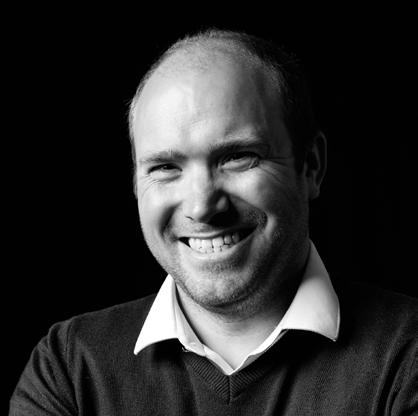
materials and systems to help deliver a cleaner, greener future. Using fundamental physics, chemistry and engineering, they are creating new ways of generating and storing renewable energy to help reach net zero targets.
Click the QR code to find out more information about Northumbria’s energy materials and systems research group.

Northumbria University is fast becoming known as the home of space, within the North East of England and beyond.
The University recently announced ambitious plans for the development of a £50 million North East Space Skills and Technology centre (NESST), which is set to transform the UK space industry – supporting the creation of over 350 jobs, injecting over £260 million into the North East economy over the next 30 years, and acting as a catalyst for the wider development of the UK space sector in the North East region.
The development of NESST is the culmination of a clear strategic vision, resulting in significant investment in space research at Northumbria over the last decade. Part of the success of this plan has been a holistic approach which has enabled academics from different faculties and departments, all with an interest in space, to work together through the University’s Space Interdisciplinary Research Theme.
Led by Professor of Space Physics, Jonathan Rae, this group includes researchers with backgrounds as diverse as arts, geography, mathematics, law, physiology, humanities and engineering. As Professor Rae explained: “I believe that collaboration breeds innovation. We knew there was excellent research being carried out across the University related to
space, but much of this was being done in silos. By providing a forum for people from different academic backgrounds to meet and discuss their ideas, we are coming up with some truly unique research which is answering the big questions arising from the rapid growth of the space sector.”
As a space plasma physicist, Professor Rae’s own research focuses on space weather, exploring how activity from the Sun is impacting us here on Earth. Through his research he has played a key role in the UK Research and Innovation-funded £20 million Space Weather Instrumentation, Measurement, Modelling and Risk programme that will improve the UK’s capabilities in space weather monitoring and prediction. And while academics at Northumbria have had significant funding success for projects within their individual fields of expertise, Professor Rae firmly believes an increase in collaborative research bids will be the next step in the evolution of space research and innovation at Northumbria.
“Our space research is now so multi-faceted I can see a number of large, ambitious funding bids being submitted in future by members of
the Space Interdisciplinary Research Theme. I don’t think there is anywhere else taking the same interdisciplinary approach to space research as Northumbria – it really is allowing us to look at space from a whole new perspective.” This extended feature showcases the wide variety of space research taking place at Northumbria. In addition to projects with a more obvious space connection, such as the development of satellites, this also includes work to map icebergs from space, the search for extraterrestrial life, the laws surrounding space junk, and understanding space from a cultural perspective.


Click the QR code to find out how Northumbria University is powering the next generation of space innovation.

A Northumbria physiotherapist is researching how a therapeutic tape favoured by elite athletes could be used on future missions to the Moon to protect astronauts from trips and falls.
The lunar landscape is one of contrasts –a monotone environment which is either dazzlingly bright or pitch black, making it much harder to judge distance and gradient than here on Earth. Unfortunately, this means astronauts exploring the Moon’s surface are at much higher risk of injury through falls.
Assistant Professor in Physiotherapy Kirsty Lindsay, of Northumbria’s Department of Sport, Exercise and Rehabilitation, believes a solution is available which is low-cost, lowtech and readily available.

Kinesiology tape, or K-tape as it is known, is commonly used in sports – applied strategically to an athlete’s body to provide support, lessen pain, reduce swelling, and improve performance. Dr Lindsay believes applying the tape to astronauts’ ankles could provide vital additional support when navigating the unfamiliar lunar environment, thereby reducing the risk of injury.
With funding and support from Northumbria’s Space interdisciplinary research theme, she is now testing her theory, assessing the balance of volunteers standing on a computerised platform both before and after the tape is applied.
As she explained: “Sometimes we need to think about a challenge from a new perspective. Long-term habitation on the Moon means access to power could be restricted, so a simple, lowtech solution is needed. K-tape can be applied easily, by anyone, in any environment, plus it is relatively low-cost and won’t cause any discomfort when worn under a space suit.”

If Dr Lindsay’s theory is correct, she hopes the next step will be to test the tape in space. But it won’t just be astronauts who benefit from the research, as she explains: “Often if a solution is beneficial in space, it will also benefit people here on Earth too, and K-tape could have the same positive impact on older people, those with injuries and disabilities as it could on astronauts.”
Click the QR code to find out more about Northumbria’s Department of Sport, Exercise and Rehabilitation.

Scientists have trained an artificial intelligence (AI) system to track the location, size and movement of giant icebergs around the world 10,000 times faster than a human could, using images taken from space.
Icebergs have a significant impact on the polar environment and monitoring them is critical for both maritime safety and wider scientific study. They can be sizeable, not only posing a risk to passing ships but, as they melt, releasing nutrients and freshwater into the seas, potentially impacting marine ecosystems. It is therefore crucial that those working in a maritime environment have upto-date information about the location of icebergs, as well as their size and direction of travel.
One of the best ways of monitoring their movement is through data captured by satellites orbiting Earth. However, existing algorithms designed to detect icebergs can have problems recognising their outline accurately, often including sea ice and even nearby coastline in their calculations.
recognise images and patterns, to effectively “train” a computer to accurately map the outline of icebergs from images taken by the European Space Agency’s Sentinel-1 satellites.
The algorithm they developed analyses the pixels in an image to determine the boundary or outline of objects –in this case the outline of the iceberg. The process can be carried out in one hundredth of a second – 10,000 times faster than if done manually by a person.

Professor Andrew Shepherd is Director of CPOM and Head of the Department of Geography and Environmental Sciences at Northumbria University. Speaking about the research he said: “This study shows that machine learning will enable scientists to monitor remote and inaccessible parts of the world in almost real-time.
And with machine learning, the algorithm will become more accurate as it learns from errors in the way it interprets a satellite image.”

Academics from Northumbria’s Centre for Polar Observation and Modelling (CPOM) have used a computer programme called U-net, often used to
Click the QR code to find out more about Northumbria’s Centre for Polar Observation and Modelling.


AND THE SEARCH
The possibility of extraterrestrial life, and what that might look like, has fascinated humankind for thousands of years. But the reality is that life on other planets, at least those in our solar system, if it exists or indeed existed, is most likely to be microbial, and invisible to the naked eye.
While planets such as our neighbour Mars may appear inhospitable to life, there is evidence that the Red Planet may once have experienced conditions similar to Earth, including liquid surface water.
A human mission to Mars is expected in the next 10-15 years, one of the main aims of which will be to search for microorganisms which could give an insight into Mars’ past. And while these tiny organisms could hold the key to increasing our understanding of life on other planets, they also play an important role in keeping the astronauts involved in future space exploration healthy in the process. What impact would the three years of space travel required to reach Mars have on the millions of microbes that exist inside our bodies, on which we rely to stay healthy? And how might these communities of organisms we carry with us affect lifeforms on other planets, however small?

Northumbria’s Professor of Environmental Microbiology David Pearce is working with the European Space Agency to improve our understanding of the role and impact of microbes in future space exploration. As he explained: “We need to understand the impact of long-term space missions on the health of astronauts. By applying what we know about how microbes respond here on Earth, we can better prepare those travelling vast distances through space for years at a time.
“Any astronauts landing on Mars won’t just be bringing themselves, they will also be carrying millions of microorganisms with them, and we need to understand the likelihood and impact of possible contamination of the area they visit. Likewise, what is the likelihood of astronauts unintentionally bringing microscopic lifeforms back to Earth, and how do we prevent this harming life on our own planet?”

Click the QR code to find out more about Professor Pearce’s research.

It may be smaller than a shoe box, but a new type of laserbased satellite system being developed by Northumbria University has the potential to completely transform our daily lives – allowing huge amounts of data to be transferred quickly and securely.
The satellites currently orbiting the Earth use radio waves to transmit data, however, these have limited capacity and are also vulnerable to disruption. In contrast, lasers can transmit 1,000 times more data per second, and can do it far more securely.
Researchers from Northumbria’s Space Technology Laboratory are now working in partnership with Durham University, satellite communications specialists e2E, and manufacturing company SMS Electronics Limited, to develop the world’s first commercially available satellite system using lasers to communicate rather than radio waves.
The project uses small satellites, roughly the size of an average shoebox, known in the space industry as CubeSats, which are being produced and tested by Northumbria University. The first of these satellites are due to launch into space next year, funded by almost £5m from the UK Space Agency.

As the launch date approaches, a team of Northumbria scientists are working to build and test every element of the system. Among them is Dr Amna Riaz, a Research Fellow in Space Technology. As she explained: “Traditional satellites are large and very expensive to produce, but because of the size of CubeSats, and the fact they will use lasers rather than radio waves to communicate with each other, the power consumption requirement is much lower, making them more cost effective.”
With the development of Northumbria’s North East Space Skills and Technology Centre currently underway, Dr Riaz believes the University is paving the way in satellite technology innovation. “This is ground-breaking research, and it is just the beginning,” she said. “Space communication is essential in so many aspects of our daily lives and this is a sector which is going to continue to grow rapidly. This really is an exciting time to be working in space science and in my opinion, Northumbria is the best place to be doing it.”
Click the QR code to find out more about Northumbria University’s CubeSat research.

The number of satellites orbiting the Earth is increasing rapidly as more countries and private investors recognise the potential economic opportunities presented by the space technology sector. But what happens to these satellites when they reach the end of their life?
Ensuring sustainability is incorporated into the international laws of space is critical and is an area in which Professor of Space Law and Policy Christopher Newman is leading the way. Having joined Northumbria in 2018, the same year the University became one of the first in the world to offer a specific Space Law Masters (LLM) degree, he now leads an everexpanding team of academic experts dedicated to exploring the legal implications of space exploration.
As the space race hots up, rivalries and tensions between nations and companies competing for business will also intensify, highlighting the urgent need for a recognised legal framework. One of the areas most in need of legislation is the issue of ‘space junk’, as Professor Newman explains: “Space debris is already a huge problem, and one which will only increase over time as more countries and individuals become involved in space activity. We need to find ways of removing dead satellites and other debris from the Earth’s orbit, but that in itself poses legal challenges. The techniques being considered are very experimental, and if they are being
used to destroy or remove unwanted space debris, how can we ensure they are not also being used maliciously to diminish the life of an active satellite, especially given the current global geopolitical tensions.”
With space becoming increasingly busy, Professor Newman believes tracking the objects orbiting our planet is key to preventing future legal issues. He said: “If we’re going to clean up space, we need to increase our situational awareness –better tracking of satellites will vastly reduce the chances of collisions, which can not only prove costly but also cause misunderstandings between nations. This will become increasingly important in the future and at Northumbria we are playing a leading role in international discussions around the sustainability of space activity in the years to come.”


Click the QR code to find out more about Space Law and Policy research and teaching at Northumbia University.
The significant growth of the space technology sector in recent years has been largely due to investment by privately-owned organisations and wealthy entrepreneurs. So-called ‘NewSpace’ companies, such as SpaceX, Blue Origin and Virgin Galactic are launching their own rockets, conducting space tourism, and even planning permanent human settlements on the moon. But what impacts are these activities having on those of us left behind?
At Northumbria, artist Dr Paul Dolan and environmental geographer Dr Pete Howson are exploring the difficult tradeoffs in developing sustainable spaceports –sites for launching or receiving spacecraft. “Many of these spaceports come with big promises of hi-tech jobs and other local benefits,” says Dr Howson. “But as we’ve seen from our ongoing research in Indonesia, the US and the Scottish Highlands, unless local cultures and livelihoods are respected, these bold projects tend to end in the wrong kind of fireworks.”

ambitions to explore new worlds, don’t end up ruining our own in the process.

As Dr Dolan explained: “Privately-owned space industries are generating a lot of excitement, but we believe that whenever there is hype surrounding a technological development there also needs to be a greater deal of scrutiny and accountability. Our research provides a clear-eyed critical look at the impact this technology is having on our planet. NewSpace industries focus on a future vision of life in space and the technology required to make this happen, but are these organisations prioritising the long-term future of the human race over the health and welfare of the current population? By highlighting the experiences of those impacted by these activities through our research, reports, and exhibitions, our aim is to ensure environmental consideration is given during the development of future NewSpace technologies.”
Through their research with local and indigenous groups, they aim to shine a light on the communities steering, negotiating, and resisting NewSpace activities, so that people’s
Click the QR code to find out more about the work being carried out by Dr Howson and Dr Dolan.

In recent years there has been a rapid acceleration in the exploration and commercialisation of space. But how are the technological and scientific developments within the space sector being processed from a cultural and ethical perspective?
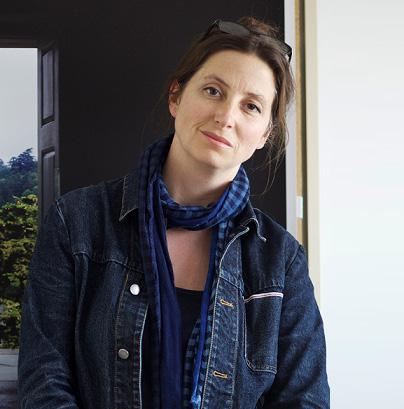
A holistic approach to space research is not only beneficial but critical, according to Northumbria University’s Professor Fiona Crisp, co-lead of the University’s Cultural Negotiation of Science (CNoS) research group. Established 10 years ago, CNoS brings together academics from the arts and humanities with scientists and technologists to develop interdisciplinary research, with the group recently hosting a ‘Space Assembly’ that explored the critical and cultural dimensions of space science.
As Professor Crisp explains: “Humanity’s connection with the cosmos through art and literature pre-dates our scientific understanding. For thousands of years, we have had an imaginative relationship with space, but the speed, scale and distance of recent techno-scientific developments are much harder for lay-publics to connect to. Space technology is accelerating at such a fast pace that the cultural and ethical considerations explored through the arts and humanities are being overlooked. It’s therefore vital that we have cultural conversations running in parallel with the techno-scientific developments to ensure everyone, no matter what their background, feels able to connect with and contribute to the space debate.”
Cross-disciplinary working is key to this approach and at Northumbria, academics from different backgrounds, all with a shared interest in space research, can collaborate through the University’s Space Interdisciplinary Research Theme.
“Our work at Northumbria is about bringing together people from a variety of backgrounds, including science, arts and humanities, to create a discourse around space science and offer civic and cultural perspectives which can run alongside the scientific conversations,” said Professor Crisp.
“We have the knowledge base here at Northumbria to become a leader in this approach – taking a cultural, creative, critical perspective when it comes to space research.”
Click the QR code to find out more about the Space Assembly: The Cultural Negotiation of Space Science event.



A technique used to restrict the flow of blood in patients’ limbs following surgery could be used to keep astronauts healthy during flights to the Moon and further afield.
With human missions to the Moon, and eventually Mars, planned over the coming years, understanding the potential impact of space travel on the human body is of vital importance. The absence of gravity in space can result in a loss of muscle and bone mineral, the severity of which increases the longer an astronaut is away from Earth.
Dr Luke Hughes and Professor Nick Caplan, from Northumbria’s Aerospace Medicine and Rehabilitation Laboratory, believe a technique known as Blood Flow Restriction Exercise (BFRE) could be used to keep astronauts healthy during long space flights. The technique involves applying a surgicalgrade tourniquet cuff to an individual’s limb and inflating it to reduce blood flow and oxygen during exercise. It has been shown to mitigate loss of muscle and bone mineral in individuals following surgery and during limb immobilisation. Because BFRE is performed at low intensities it requires minimal exercise equipment, making it ideal for astronauts operating in cramped conditions.
As Dr Hughes explains: “Current exercise hardware and protocols used on the International Space Station are unable to completely mitigate the effects of zerogravity on the human body, and future missions to the Moon and beyond will require more compact, lighter exercise equipment to be taken on board spacecraft.
“Our research will develop an innovative exercise device that meets the constraints of future missions and enables BFRE to be performed during spaceflight, with the goal of mitigating loss of muscle and bone in astronauts.”
As winners of the 2023 Humans in Space Challenge, run by South Korean health technology company, Boryung; and having recently also been awarded a UK Space Agency Enabling Technologies Programme grant, Professor Caplan and Dr Hughes are now developing proof-of-concept designs for an innovative Personalised Tourniquet System for spaceflight that could be used in future missions.
Click the QR code to find out more about Northumbria’s Aerospace Medicine and Rehabilitation Laboratory.

“UNDERSTANDING HOW BACTERIA EVOLVED WILL FILL A GAP IN OUR UNDERSTANDING OF EVOLUTION.”
PROFESSOR IAIN SUTCLIFFE

A research project being carried out by two Northumbria University academics could provide new insight into a mystery surrounding the evolution of microbes.
Despite being far too small to see with the naked eye, microbes are one of the most diverse organisms on the planet with around a trillion species. These tiny, single-cell organisms were the earliest form of life on Earth, estimated to have first appeared around four billion years ago. Present in the soil, water and air around us, microbes are also found inside our bodies – in fact over 100 trillion microbes can be found in the human body alone.
For many years, scientists have been studying the evolution of bacteria – a type of microbe - in the hope it will shed light on the early evolutionary mechanisms common to all forms of life.
One of the ongoing mysteries surrounding the early stages of bacterial evolution is why modern-day bacteria have two membranes surrounding their single cell, whereas the cells in almost all other life forms have just one membrane. Due to the vast expanse of time which has passed since this evolution occurred, and the fact that fossil records for microbes is often poor and typically lacks the relevant details, it has been very difficult to answer this important question.
A research project being carried out by a team from Northumbria University’s Department of Applied Sciences could provide new insight. Professor Iain Sutcliffe and Dr Paul James have been
awarded a share of £12 million of funding provided by the Biotechnology and Biological Sciences Research Council (BBSRC) to support projects which have the potential to transform our understanding of the mechanisms of life.
Professor Sutcliffe and Dr James will attempt to recreate a situation in the laboratory that could mimic what happened billions of years ago on Earth when microbial evolution was taking place.
As Professor Sutcliffe explained: “It is likely that the early world, going back three or four billion years, was a harsh environment. While human body temperature is 37 degrees centigrade, the organism we’re using to carry out our modelling
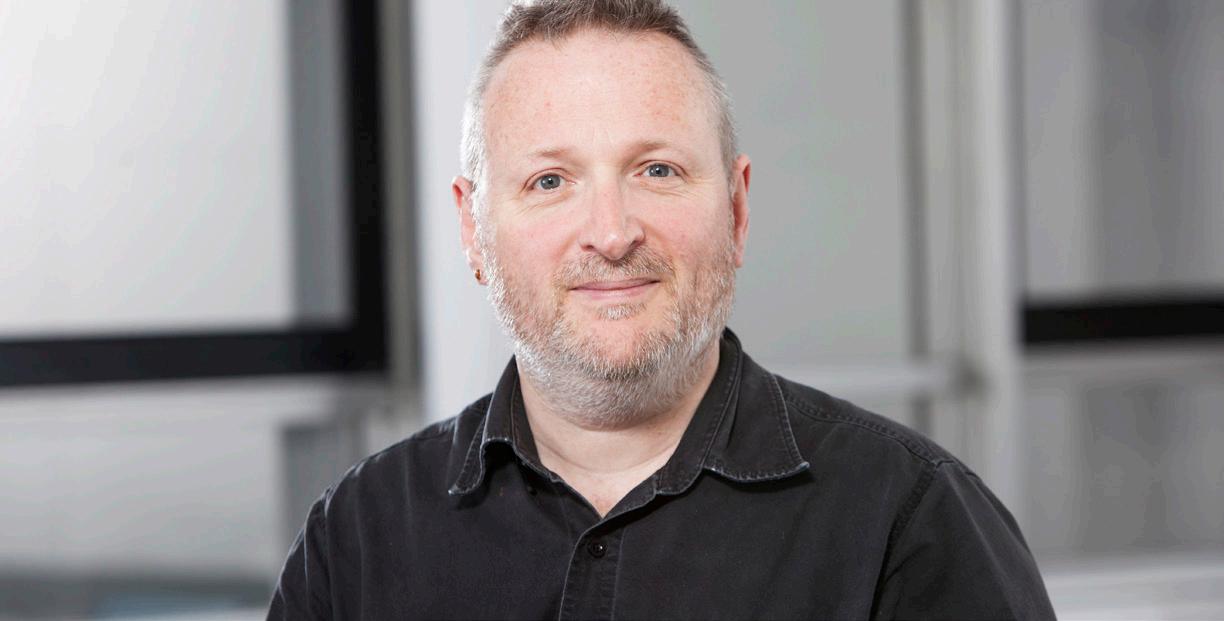
grows at 55 degrees centigrade, or even hotter, so we will ensure it remains at that temperature as these may be more like the conditions under which it originally evolved.”
Speaking further about the project, Professor Sutcliffe added: “When we think about evolution and biology it tends to be in relation to the conservation of large mammals such as elephants and pandas, or the evolution of humans. But most life on Earth is microbial and single-cell microbes dominate all the biological processes on our planet. Therefore, understanding how bacteria evolved will fill a gap in
our understanding of evolution and how life on earth has changed over billions of years.”
The BBSRC’s Pioneer Awards aim to draw upon unconventional thinking and approaches, funding new investigations which aim to radically change the way we think about important biological phenomena covering plant, microbial and animal sciences.
Click the QR code to find out more about the BBSRC Pioneer Awards.

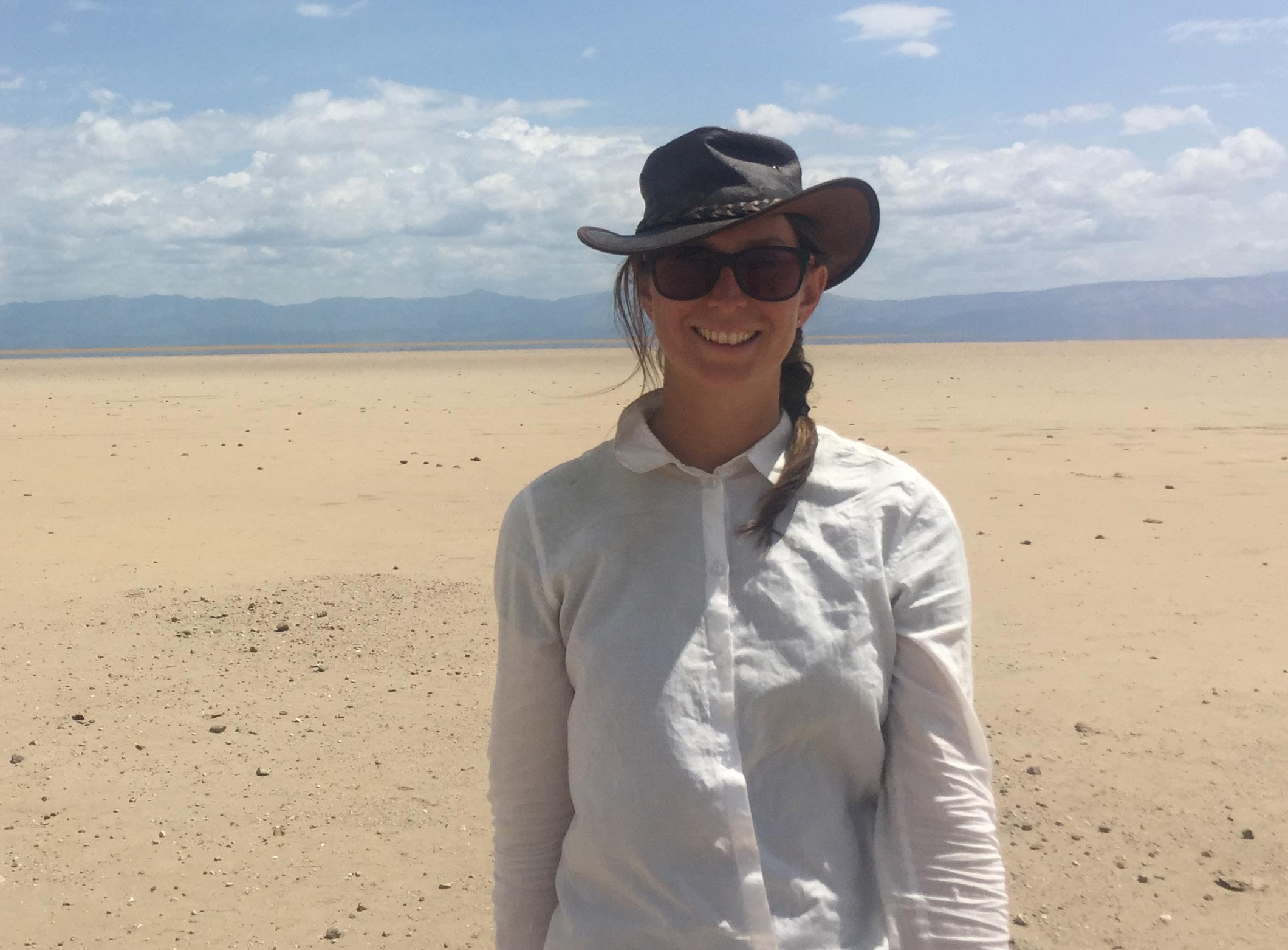
“THE RESEARCH WILL PROVIDE CRITICAL INSIGHTS ON DRYLAND HYDROCLIMATE AND IMPROVE OUR UNDERSTANDING OF THE MODULATION OF EARTH’S CLIMATE IN A FUTURE WARMING WORLD.”
A leading Northumbria University researcher has been awarded a prestigious Royal Society Fellowship worth over £1.4 million to study the impacts of climate change on drylands.
Dr Monika Markowska joined the University in January 2024 as part of her Royal Society University Research Fellowship which examines the longstanding uncertainty of how subtropical desert regions –known as drylands – respond in globally warmer worlds. Drylands, which cover almost half of the Earth’s land surfaces, are home to one in three people in the world today. Despite their name, drylands are far from being unproductive and cover a large proportion of the regions that produce grain. Due to global warming, these already water-limited regions are predicted to expand by approximately 10 per cent by the end of this century, with newly formed “hyper-arid regions” potentially displacing populations and creating
climate refugees.
Dr Markowska’s research will study the ancient records of historic climates, found in stalagmites recovered from caves in South Africa, Arabia and southern Australia. It is hoped these ancient records will help explain what has caused dryland regions to expand and contract in the past, and therefore what we might expect for these regions in the future.

career scientists who have the potential to become leaders in their chosen fields, providing them with the opportunity to build an independent research career. Thanks to her award, Dr Markowska will be able to work in collaboration with an international and interdisciplinary team of scientists in Australia, Germany, United States and South Africa, as well as paleoclimate model researchers at the Universities of Leeds and Reading.
Dr Markowska said:

will investigate when and how dryland regions became wetter in the past, identifying the physical processes governing desertification. It will provide critical insights on dryland hydroclimate and improve our understanding of the modulation of Earth’s climate in a future warming world.”
“I am delighted to be awarded a Royal Society University Research Fellowship to conduct my research at Northumbria University. This fellowship will afford me the opportunity to build my own research group which will focus on improving our understanding of the drivers of hydroclimate change in vulnerable dryland regions globally.”
Dr Markowska explained: “Paleoclimate evidence suggests that conditions were wetter in areas that are now deserts today. My research
The Royal Society is the world’s oldest independent scientific academy, bringing together many of the world’s most distinguished scientists drawn from all areas of science, engineering, and medicine. The Society established its University Research Fellowship scheme to identify outstanding early
In joining Northumbria’s Department of Geography and Environmental Sciences, Dr Markowska will be working alongside a world-leading group of researchers using climate records preserved in caves to solve problems with forecasting change in various aspects of the Earth’s systems. The Department of Geography and Environmental Sciences encompasses research in areas such as cold and paleo environments, climate and conservation, and social and cultural geographies.
Click the QR code to find out more about research within the department.

Researchers from Northumbria and Bangor Universities have discovered that the Pine Island Glacier in West Antarctica has gone through an irreversible loss of ice within the last 80 years.
The findings, published in the influential journal Nature Climate Change, confirm that the Pine Island Glacier underwent a rapid, unstable retreat at some point between the 1940s and 1970s. During this period, the glacier, which was 40 km ahead of its position today, detached from a ridge on the seabed. Using real-world satellite observations, researchers identified that the glacier underwent a rapid retreat during those decades until it temporarily stabilised on a shallow part of the seabed in the late 1980s.
The researchers believe that a period of warm ocean temperatures would have been sufficient to cause melting beneath the glacier, forcing it to retreat from its longterm position on the ridge. Their results also indicate that by the early 1970s the glacier had retreated to a point where it could not recover its

original mass and position during colder conditions. This confirms that during this period, the glacier’s retreat passed a tipping point which is irreversible.
The researchers also applied their numerical model to predict the future behaviour of the glacier in a separate study and have found that it will again enter periods of rapid retreat unless global warming is kept within limits.
Dr Brad Reed, a Research Fellow in Ice-Ocean Modelling at Northumbria University, began the research whilst undertaking his PhD at Bangor University. He said:
“The implications for the future are clear. What has happened in the past can happen again. Our ability to model past changes as the glacier passed a tipping point, provides us with an added confidence in our future predictions. But it is worrying
that our model predicts further irreversible and fast periods of mass loss from this same region in the future unless we can halt global warming.
“Whilst the phase of retreat that we modelled may have finished, we cannot rule out similar irreversible mass loss from this part of the ice sheet in the near future and we should not risk the consequences associated with these types of retreat and mass loss.”
Hilmar Gudmundsson, Professor of Glaciology at Northumbria University, co-authored the study and warned that it was potentially a case of luck that the glacier’s retreat stabilised due to the topography of the bedrock under the Amundsen Sea. “The irreversible behaviour of the glacier we see in those simulations, is also seen in our future predictions,” he said.
“What our models suggest is that passing further tipping points of the Pine Island Glacier will cause even larger loss of ice. In that sense, this time we may have got lucky.”
Researchers from Northumbria University are leading major studies assessing changes in Antarctica, including TiPACCs (Tipping Points in the Antarctic Climate System). This £4 million project is investigating the probability of sudden and large changes in the sea-level contribution from the Antarctic Ice Sheet due to crossings of tipping points in the marginal seas and the grounding lines of the floating ice shelves that fringe the ice sheet.
Click the QR code to find out more about TiPACCs.

“WHAT OUR MODELS SUGGEST IS THAT PASSING FURTHER TIPPING POINTS OF THE PINE ISLAND GLACIER WILL CAUSE EVEN LARGER LOSS OF ICE. IN THAT SENSE THIS TIME WE MAY HAVE GOT LUCKY.”
HILMAR GUDMUNDSSON

Pupils from a North East primary school have collaborated with scientists to design a board game which allows young people to explore the issue of climate change and discuss the actions that can be taken in response to this huge global challenge.
Climate Change: It’s In Our Hands is a classroom-based game, aimed at children aged ten and over, and designed to make the often-complex subject of climate change accessible and engaging in a meaningful way. It has already been given the seal of approval by pupils at New York Primary School, in North Tyneside, who worked with staff from Northumbria University, as well as Newcastle-based graphic designers, Roots and Wings, to create the game.
The idea originally came from the NUSTEM outreach group at Northumbria University, with funding awarded by the Natural Environment Research Council to bring the game to life. The NUSTEM group work with schools across the region to provide activities and opportunities for children to engage with the STEM subjects of science, technology, engineering and mathematics. New York Primary School STEM Leader Julia Bourne said
the children involved in the project were proud and excited to know the game they helped design would be played by children all over the country. She added: “By being involved in the development of the board game, the children have had the opportunity to have some fantastic discussions about climate change and how they are able to work together to make a positive impact on the world. The game can support these vital conversations and allow children to discuss this hugely important topic in a way that is interesting to them. It also shows them that trying to make changes alone isn’t effective but, by working together, you can make a difference. This is such a key message for our young people to hear.”
types of projects are so important as they bring new and innovative ideas into the primary classroom. The expertise and funding from the university means that children can be involved in something that will have impact far beyond their own school.”

Climate Change: It’s in Our Hands consists of four rounds, during which groups of children work together to take actions that will have an impact on our climate. As they play, their choices affect the outcome of the game, and they need to work together to put into action strategies that will limit global temperature rises.
Speaking about the collaboration with Northumbria University, Julia added: “These
Dr Emma Hocking, of Northumbria’s Department of Geography and Environmental Sciences, has also been involved in the game’s development and hopes it will now be used by schools across the UK to encourage children to think about and discuss climate
change. Speaking about the project, she said: “Climate change can often seem like a bit of a vague and scary topic for children, so we wanted to create something which would make it more relevant to young people and enable them to think positively about actions they can take to make a difference. Thanks to the feedback from the children we were able to design and then refine the game, ensuring it really appeals to the target age group. The game is available online and can be downloaded and printed by schools for free, and we really hope it will be a useful resource for schools when teaching children about environmental issues.”
The game was designed with the help of non-profit design company Roots and Wings – who specialise in projects with social or environmental objectives.
Director Alan Ramsay added: “Overhearing the discussion the children were having was

“BY BEING INVOLVED IN THE DEVELOPMENT OF THE BOARD GAME, THE CHILDREN HAVE HAD THE OPPORTUNITY TO HAVE SOME FANTASTIC DISCUSSIONS ABOUT CLIMATE CHANGE AND HOW THEY ARE ABLE TO WORK TOGETHER TO MAKE A POSITIVE IMPACT ON THE WORLD.”
NEW YORK PRIMARY SCHOOL STEM LEADER JULIA BOURNE
fascinating and ultimately they came to the conclusion that the only way to improve the current situation is by everybody working together.”
Click the QR code to download Climate Change: It’s in Our Hands.

A group of Northumbria University students travelled to the U.S. Embassy in London to present their own climate and environment policy recommendations after months of being mentored by experts from the public, private and third sectors.
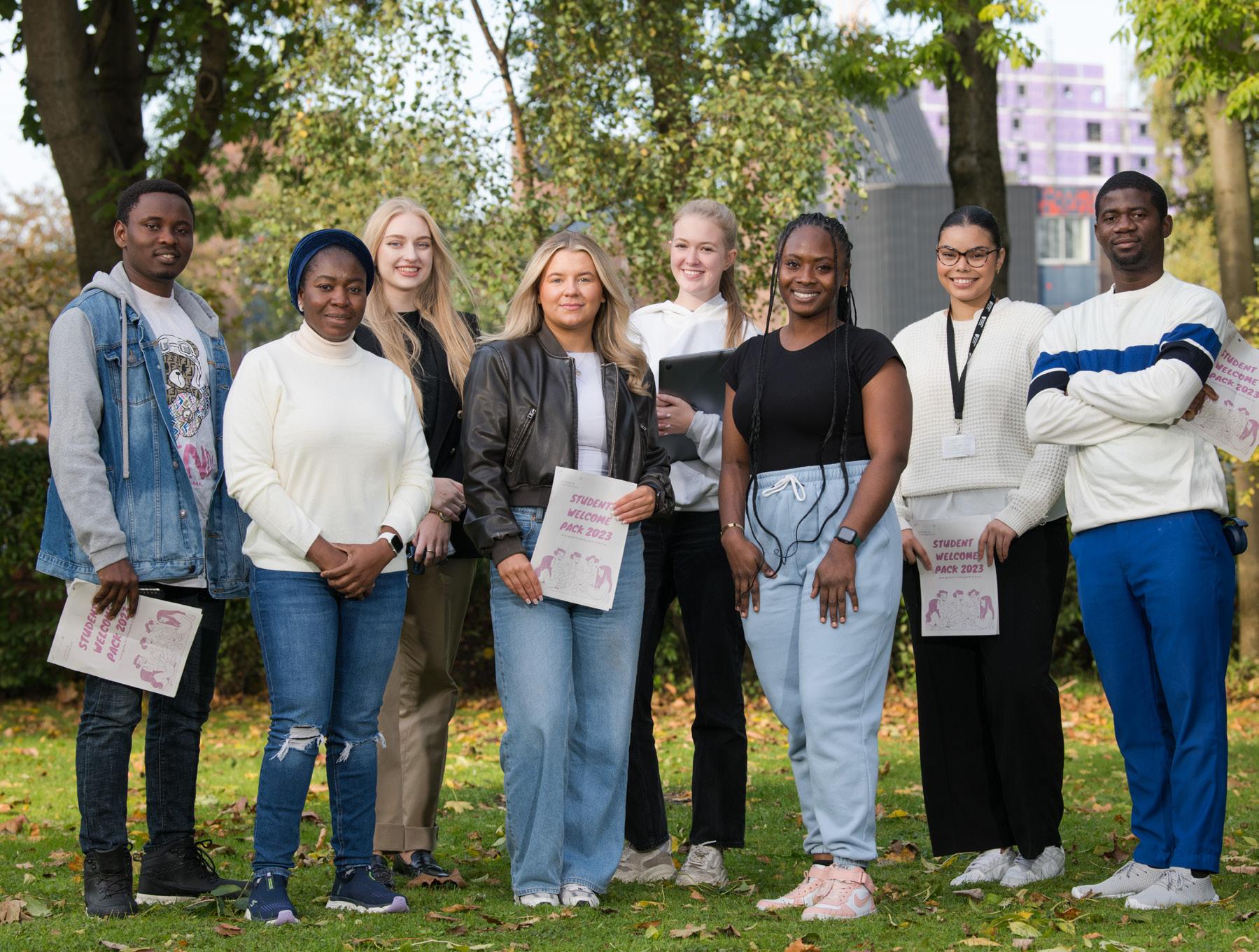
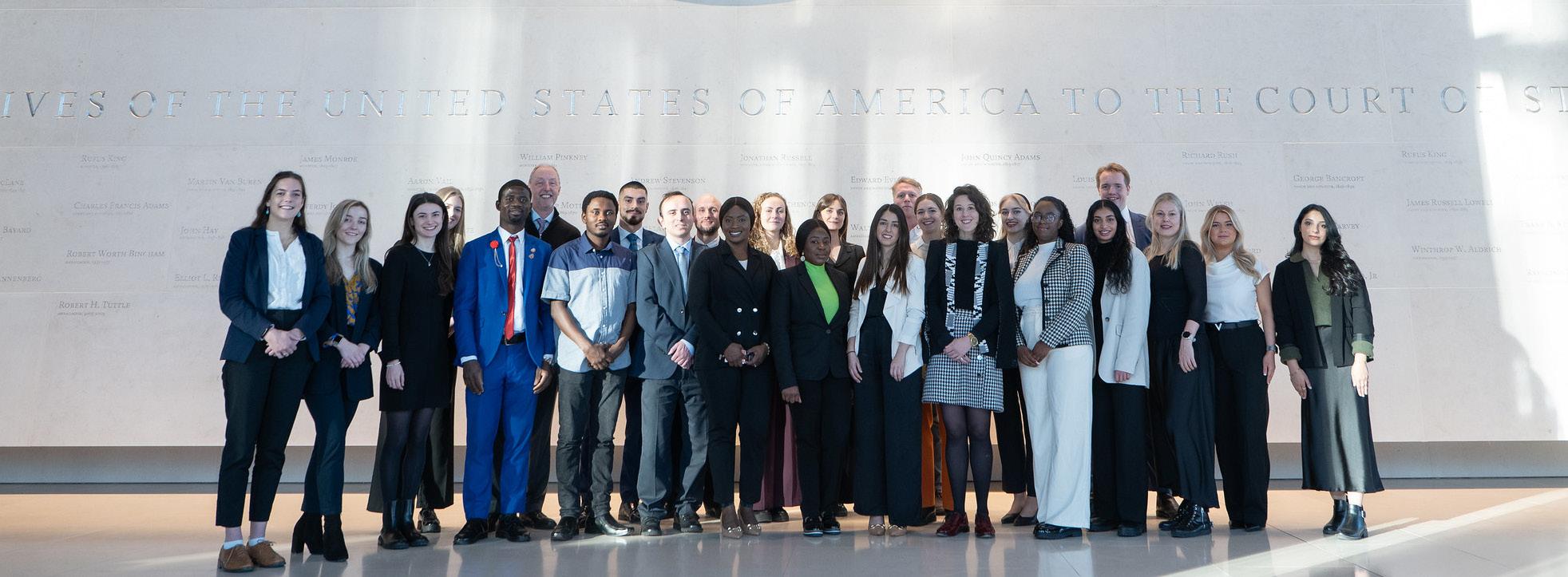
The students, studying courses including International Relations, Geography and Politics, were the first selected to complete a new intensive programme offered by ACCESS: Policy, providing an insight into addressing the global challenges of climate and environmental change through policy making.
ACCESS: Policy is a nonprofit organisation set up by a group of volunteers from a range of diverse backgrounds, with the aim of inspiring and empowering young people from underrepresented groups to pursue careers in policy making on globally significant issues. The organisation’s first programme, known as ACCESS: Climate & Environment, was offered exclusively to Northumbria students who were given the opportunity to work with highly experienced mentors from the climate and environment field over a period of four months.
The students began working in groups last Autumn to develop research proposals for action on specific challenges, including deforestation, the lives of indigenous people, and farming in resource-scarce conditions.
The programme culminated in an Expo event, held at the U.S. Embassy in London, where the students formally presented their work to a panel of senior government officials and a senior leader in the third sector.
The panel provided feedback on the content and presentation of the students’ proposals.
Throughout the event, the students also received a bespoke diplomacy and networking skills session from the U.S. Deputy Chief of Mission, Matthew Palmer. The ACCESS: Climate & Environment programme was funded by the U.S. Department of State’s Bureau of Educational and Cultural Affairs.
Amy Campbell, who works within the Department for
Energy, Security and Net Zero (DESNZ) as a Climate Negotiator for the United Nations Framework Convention on Climate Change (UNFCCC), was one of the expert mentors paired with second-year International Relations and Politics student, Molly Smith. Speaking of her experience, Molly said: “The ACCESS: Climate and Environment programme has been a unique opportunity to participate in. Being able to collaborate with such brilliant people in their field and gain insightful knowledge from them is invaluable.
“I have been so lucky to be paired with a mentor as brilliant as Amy Campbell, who has supported me throughout the four months. The chance to connect in person with inspiring and passionate people about climate change was a blessing. As the issue is ever-progressing, I am looking forward to continuing to fight this cause.”
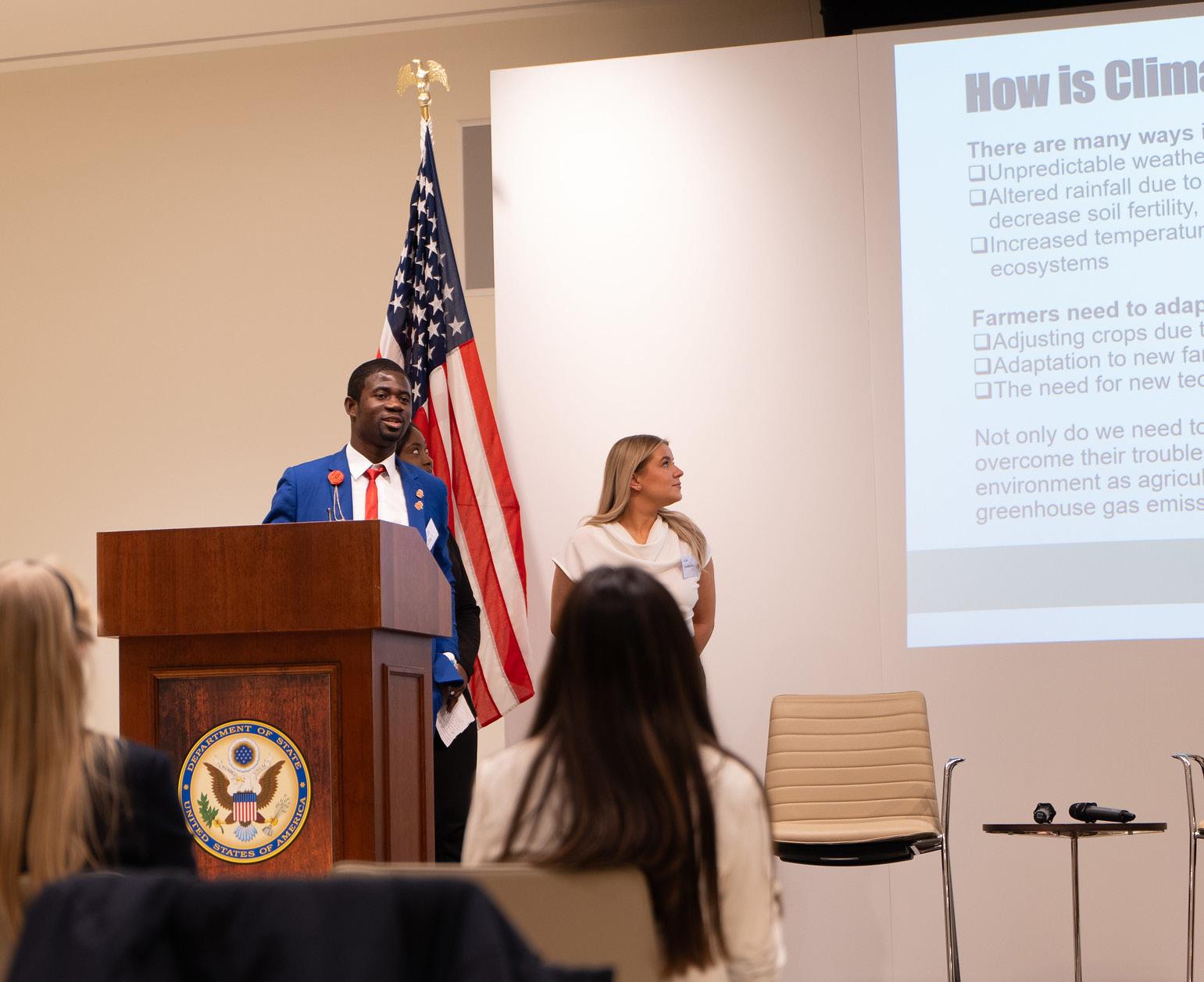
Matthew Johnson, Professor of Public Policy at Northumbria University, said: “ACCESS: Policy is led by a team of inspirational public sector volunteers from a range of backgrounds. This programme has put a group of incredibly talented Northumbria students at the heart of dealing with a crucial global crisis and the experience has clearly been transformative for them. I’m not aware of a comparable programme with the same quality of mentoring from experienced people in the field, and such an incredible opportunity to work with U.S. diplomatic staff, and present policy proposals to key policymakers.”
The Graduate Futures team at Northumbria oversee the University’s careers, employability and enterprise support services for students
The programme culminated in a special Expo event, held at the U.S. Embassy in London, where the students formally presented their work to a panel of senior government officials and a senior leader in the third sector.
and graduates, and were key to matching student applicants with the programme.
Piotr Mahey, Director of ACCESS: Policy, said: “Talent is not more prevalent in certain demographics – but opportunities often are. This programme aims to change that and open doors to a sector that is, unfortunately, not representative of the people it aims to serve. I am absolutely delighted to see our incredible Student Fellows get so much out of the programme, and I’m very excited to see the even greater things they will go on to do.”
Click the QR code to discover more about ACCESS: Policy

Academics around the world have warned of a threat to scientific research as major social media platforms limit access to user data.
Numerous social media platforms, including X (formerly known as Twitter), TikTok and Reddit, have made substantial changes, restricting or charging for access to their Application Programming Interfaces, known as APIs. These changes as to how data is extracted and shared within and across social media platforms are impacting academics’ ability to conduct research, as outlined in a new study published in Nature Human Behaviour.
Researchers have routinely tapped APIs for large-scale data on social media users relating to behavioural patterns at individual, group, and population levels. This work has previously included predicting where conflict may occur and allocating disaster aid; to understanding the impacts of online polarisation or misinformation on voting patterns.
Dr Dirk van der Linden from Northumbria’s Department of Computer and Information Sciences contributed to the study.
Dr van der Linden is part of Northumbria’s Social Computing (NorSC) group, which studies

social technology and the idea that designing it requires critically understanding the people that use it, the ways in which they live and interact with one another, and the impacts that it can have on our behaviours and interactions with the world. He explained: “It is ever more important to be able to study what is happening on social media networks, as so much of our lives are lived online.
“It’s already complicated for scientists to deal with an increasingly fragmented landscape of different social media networks in use today, where much of the data is inherently ephemeral. But when the networks controlling this data further complicate matters with more restrictive terms and conditions, we risk running into situations where research skirts the borders of what is ethical, or worse (depending on your point of view), not done at all.”
However, there are instances where changes to API access are necessary. For example, the Cambridge Analytica Scandal in 2018 led social media platforms to implement strict, necessary
“WE RISK RUNNING INTO SITUATIONS WHERE RESEARCH SKIRTS THE BORDERS OF WHAT IS ETHICAL, OR WORSE… NOT DONE AT ALL.”
DR DIRK VAN DER LINDEN
measures to prevent third-party users from gaining access to personal data without consent. They then enabled users to revoke app permissions, which gave users more control over their data to protect user privacy.
The research team, led by academics from the University of Bath, said that the changes are adversely affecting academics who want to study the impact of social media on mental health, misinformation, political views and more.
“It’s critical that research on people and society can access these large-scale data sets as there can be policy implications and far-reaching consequences
if we get it wrong,” said Dr Brit Davidson, from the University of Bath’s School of Management.
“Over time, we have many cases of where the lack of open science (sharing data, analysis, materials) impacts our ability to verify and check for science credibility. We’ve seen science discredited, which causes concern as to whether work can be reproduced or replicated.”
The EU Digital Services Act, which came into effect in August 2023, aims to provide vetted researchers with access to ‘very large online platforms’, with similar updates to GDPR Article 40. However, researchers are still waiting to hear more about what vetting means in practice and the conditions of using the data.
Click the QR code to find out more about research within the Department of Computer and Information Sciences.

Researchers at Northumbria University have received £1.4 million to progress their work into connecting care and support services for people experiencing homelessness.

A THREE-YEAR RESEARCH PROJECT, LED BY NORTHUMBRIA UNIVERSITY ACADEMICS AIMS TO BETTER CONNECT THE CARE SYSTEM PHOTO: FOTOGRAFIA INC/GETTY IMAGES
Below: Professor Monique Lhussier
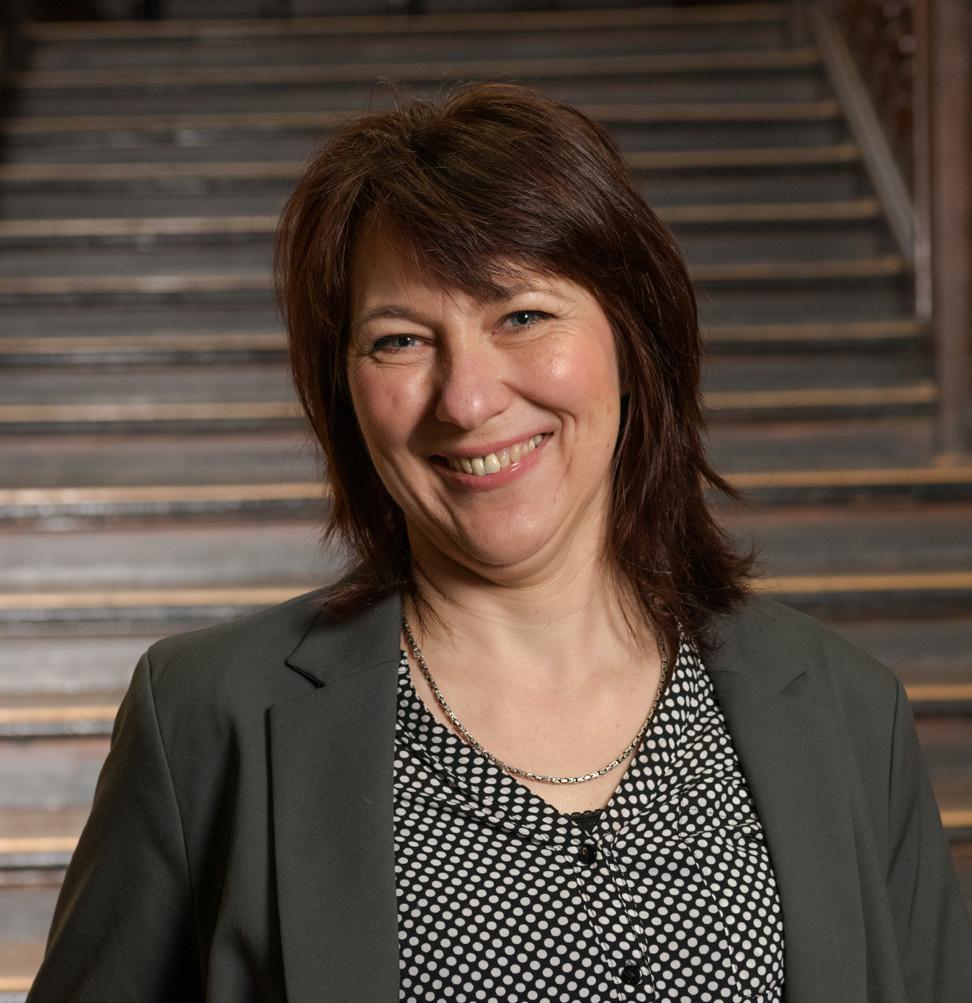
“THIS IS ABOUT WORKING IN DIRECT AND EQUAL COLLABORATION WITH PEOPLE WHO HAVE EXPERIENCED HOMELESSNESS SO THAT ALL PEOPLE CAN HAVE ACCESS TO THE SUPPORT THEY NEED, WHEN THEY NEED IT, AND IN THE WAY THEY NEED IT.”
PROFESSOR MONIQUE LHUSSIER
Professor Monique Lhussier and Dr Christina Cooper from Northumbria’s Department of Social Work, Education and Community Wellbeing have been awarded £1.4 million by UK Research and Innovation (UKRI) for a three-year project that aims to facilitate a more integrated service offering, tailored to individuals experiencing homelessness. The work carried out by the team also aims to expand the service offering available to include creative health approaches such as art, crafts, sports, gardening or cooking to provide alternative methods to overcome mental and physical health challenges. The inclusion of creative health approaches within the research will be driven by six key organisations – Tyne Housing, Groundswell, Alphabetti Theatre,
Art Gene, Chilli Studios and Helix Arts. A network of housing providers, arts organisations and healthcare services from across the North East and Cumbria will also take part in the project to tackle siloed working.
The aim is to develop a model which supports the move from crisis management to collaborative partnerships for early intervention. This will inform the development of an evidence-based regional policy for homelessness as well as a website featuring details of all support services available in one place. Commenting on the project Professor Lhussier said: “When available, support for homeless people is often only for a short time, is not coordinated with other services and fails to meet all of a person’s needs.”
She noted that at present, support services are not always integrated and may try to address in isolation the issues which can contribute to homelessness –such as abuse, trauma, addiction and mental or physical health challenges. Whereas, in reality, these complex and varied health and social care needs can rarely be treated in isolation without creating barriers when trying to positively reintegrate individuals into society. “This is about working in direct and equal collaboration with people who have experienced homelessness so that all people can have access to the support they need, when they need it, and in the way they need it,” added Professor Lhussier.
Community Engagement Coordinator at Alphabetti Theatre, Audrey Cook, is taking the lead
on the theatre’s contribution to the project. They said: “It is an exciting prospect that arts and culture is included as a necessary tool for improving wellbeing and eliminating stigma. Alphabetti Theatre is a dedicated warm space as well as a vibrant hub for local art and culture for absolutely anyone.
“The decision to prioritise exposure to art and creativity within this project alone, contributes to the necessary conversation that art shouldn’t be treated as a luxury. I am eager to see what creative outputs follow in the coming years of this project and I’m endlessly grateful to be a part of it. Not just myself, but all of us here at Alphabetti.”
The research, Making every community asset count: improving health and reducing inequalities for
people experiencing homelessness, is part of the third phase of projects funded through the Mobilising Community Assets to Tackle Health Inequalities programme. The UKRI programme is led by the Arts and Humanities Research Council (AHRC) in collaboration with the National Centre for Creative Health.
Northumbria University is dedicated to reducing health and social inequalities and improving social, economic and health outcomes for the most marginalised in society. Through its new Centre for Health and Society Equity (CHASE), of which Professor Lhussier is founding director, researchers will be delivering world-leading health and social equity research and creating innovative, evidencebased policies and data-driven solutions to bring impactful change across the region, the UK and globally.
Discover more about CHASE by clicking the QR code.

“TO BE ABLE TO SAY WE’VE NOW ADDED OVER 100 NEWLY QUALIFIED NURSES TO THE NHS IS BRILLIANT AND IS AN INCREDIBLY STRONG FOUNDATION FOR US TO BUILD ON.”
DR JULIE DERBYSHIRE

Northumbria University recently marked a major milestone, celebrating the graduation of the 100th student from the University’s nursing degree apprenticeship programme.
Established in 2019, the 18-month course was the first of its kind to be established in the UK and was specifically developed to make careers in nursing more accessible. It aims to give individuals with previous clinical experience, for example healthcare assistants, the opportunity to graduate as registered nurses within a compressed time frame. The apprenticeship programme is delivered in partnership with NHS Trusts across the North East including Newcastle, Northumbria, South Tyneside and Sunderland and Gateshead. The latest cohort completed their training and officially joined the regional workforce in April this year. Among them was the 100th registered nurse to graduate through the programme.
Dr Julie Derbyshire, Director of Apprenticeships and Assistant Professor in Nursing at Northumbria University, said: “This is a fantastic milestone for us to hit. These
types of apprenticeship routes were brought in to help us, and other higher education establishments, offer an alternative route for individuals to become registered nurses and ultimately help to tackle the huge workforce shortage faced by the NHS at the moment.
“To be able to say we’ve now added over 100 newly qualified nurses to the NHS via the degree apprenticeship programme, is brilliant and is an incredibly strong foundation for us to build on. We’re looking forward to continuing to contribute to reducing the shortfall in nursing staff as we welcome future cohorts to Northumbria University.”
Northumbria was recently awarded the Nursing Apprenticeship Provider of the Year award at the Student Nursing Times Awards 2024, with the University being recognised for putting apprentices at the heart of its provision, as well as offering an
innovative and future-focused curriculum.
The latest cohort of nursing degree apprentices included the first 18 apprentices from South Tees Hospitals NHS Foundation Trust, which recently partnered with Northumbria to open the apprenticeship scheme to its staff. Discussing the success of the new partnership, Debi McKeown, interim nurse workforce lead at South Tees Hospitals NHS Foundation Trust, said: “Northumbria University has provided a group of nurses who are prepared for the role ahead and who have demonstrated great resilience throughout their training. These nurses will support us to continue to develop a sustained and effective workforce for the future.”
Northumbria University is one of the largest centres for healthcare professional education in the North of England, offering a range of specialist degree and CPD programmes across
many areas of nursing, midwifery, operating department practice, physiotherapy and occupational therapy.
The University recently welcomed health leaders from across the UK for a conference, entitled Working Well in Healthcare: The Changes, Challenges and Opportunities for Developing your Workforce. The event brought together senior leaders, people managers and workforce development and education leads to discuss the challenges and opportunities facing the sector, as outlined in the NHS Long Term Workforce Plan.
Keynote presentations were given by a number of expert speakers including Deputy Chief Nursing Officer and National Director of Education & Training and the Long Term Workforce Plan for Delivery for NHS England, Professor Mark Radford and former Regional Head of Nursing and Midwifery for NHS England’s Workforce
Training and Education Directorate and Leadership, Development and Inclusive Practice Specialist, Professor Laura Serrant.
During the event, host Professor John Unsworth, Deputy Faculty Pro ViceChancellor for the Department of Nursing, Midwifery and Health also detailed the University’s commitment to its ambitious plans for its new Centre for Health and Social Equity (CHASE) – a flagship centre of excellence for research and training to meet the needs of stakeholders and communities in Newcastle, across the region, nationally and beyond. CHASE will increase the University’s capacity to train new healthcare professionals and deliver more continuing professional development courses for nurses, midwives and allied health professionals.
Click the QR code to find out more about healthcare qualifications at Northumbria University.


Researchers at Northumbria University are calling for better measures to be put in place, across the National Health Service and military mental health specific charities, to prevent serving military personnel and veterans from taking their own lives.
A new report, led by academics from Northumbria’s Northern Hub for Veterans and Military Families Research, identifies that suicide among serving military personnel and veterans could be reduced if those that were known to be vulnerable had access to the right help and assistance, at the right time. The findings come from the report One is too Many: A Conceptual Framework for Safety Planning within Service Delivery for Veterans and their Families, a project funded through the Armed Forces Covenant Fund Trust’s One Is Too Many programme which awarded grants to projects that aim to reduce suicide risks among vulnerable veterans. Following the launch of the report, its findings were discussed in Parliament by Liz Twist MP, Shadow Minister for Levelling Up, Housing, Communities and
Local Government, and Andrew Murrison MP, Parliamentary Under-Secretary of State for Defence, People and Families.
As part of their findings, the research team has produced an integrated toolkit to assist government, NHS and military charities to identify gaps in care delivery and build safer environments in which veterans and their families can be cared for.
Researchers carried out indepth interviews with military families across the UK who had been bereaved by suicide, who repeated similar stories of being excluded and disconnected from support systems. According to the report’s lead author and Director of The Northern Hub for Veterans and Military Families Research, Professor Matthew Kiernan, this needs to change.
“Many families witnessed first-hand the slow decline of
their loved one’s wellbeing –and felt helpless, and powerless in preventing what they saw as an inevitable outcome,” explained Professor Kiernan.
“Families’ experiences were that of passive care, often disjointed, uncoordinated, with frequent deficits in understanding and expected levels of compassion and active engagement. As we move forward it is essential that families play a key role in their loved ones’ care provision.”
The toolkit the team have produced is a self-assessment tool that supports the creation of safe environments focussed on training and education, improving services, strengthening resources, enhancing protective factors, and challenging stigma.
Dr Paul Watson, Assistant Director of the Northern Hub for Veterans and Military Families Research, said:
“Clearly, there is insufficient understanding within the existing care provision around the journey towards suicide, and what systems and procedures need to be in place to identify, understand, and prevent death by suicide in this important population and beyond. Promoting better levels of education and training is essential moving forwards.”
The stigma of negative attitudes, beliefs, and stereotypes is also harmful within the military population, often creating barriers to seeking help. Enhancing focussed mental health awareness to directly challenge the stigma of death by suicide is essential and the dual focus of client-centredness and family inclusivity is imperative, according to the report.
An Office for Veterans’ Affairs spokesperson said: “Every veteran suicide is a tragedy.
Left: A toolkit has been produced to assist government, NHS and military charities to identify gaps in care delivery.
We welcome this research by Northumbria University, and will review it as part of our continued work to ensure veterans across the UK can access the right support.”
The Northern Hub for Veterans and Military Families Research are continuing their work on veterans mental health, and are currently carrying out research exploring the biological, psychological and social factors associated with brain health in female military veterans.
Dr Tamlyn Watermeyer, Assistant Professor of Neuropsychology at Northumbria University explained: “Recent studies indicate the need for increased and early screening of female veterans; however, currently health services for veterans have mostly been developed for males. Having a better understanding of the underlying factors that lead to poorer brain health in female veterans will help healthcare providers create better support and treatments.”
Another recent study, funded by the Armed Forces Covenant Trust and the Soldiers’, Sailors’ and Airmen’s Families Association (SSAFA), looked at household poverty among veterans, with a particular focus on whether veterans’ families have security of access to healthy and nutritious food.
The Tri-Service Food Insecurity Study found that younger veterans of working age are most at risk of becoming food insecure with a combination of other risk factors identified to help ensure early intervention and tailored support for those who need it most.
Click the QR code to find out more about the work of The Northern Hub for Veterans and Military Families Research.

A PhD student at Northumbria University, with more than 20 years of experience in the agricultural sector, has won an award to support her research into the wellbeing of people from farming communities.
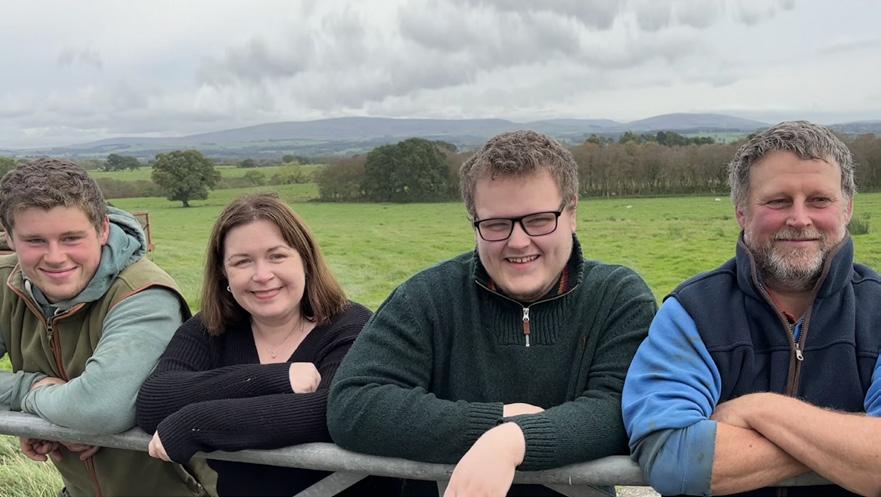
Sarah Kyle, a student in the Department of Psychology, is researching how farmers’ wellbeing can be improved by building resilience to farm-specific stressors. Stressfactors might include production costs, equipment management, weather and working conditions. As part of her research, Sarah is developing a scale to measure farming-related stress.
Beating off tough competition, Sarah was awarded a Routledge/Round Table Commonwealth Studentship award worth £5,500 which will enable her to extend her research beyond the UK, to include the Canadian farming community. Having a wider research base will strengthen the study and increase its potential impact on farming communities. Only two of these awards are made each year – one to a UK-based student, and one to a student based elsewhere in the Commonwealth.
As a farmer’s wife, Sarah understands firsthand the issues being faced by farmers and their families. “The study is being carried out to further our understanding of the different causes of stress experienced by members of the farming community,” said Sarah. “We are planning to design a new measure of farming related stress and we need to make sure we have captured all the causes of stress before we do this. The study is being carried out as part of a PhD thesis project.”
Sarah’s research will help identify and better understand farmers’ wants and needs when it comes to mental health and wellbeing. By evaluating the similarities and differences across farming populations, the research will provide the evidence base for intervention programmes that will have real impact on people’s lives.
Click the QR code to find out more about Sarah’s research and how members of the farming community can take part in the study.
Below:
Research led by Northumbria academics shines a light on the impact of moving patients from hospitals to care homes during the pandemic.

“WHAT WE SEE IS A LACK OF INTEGRATION AND A DEHUMANISING PROCESS THAT WAS NOT ALWAYS PERSON-CENTRED.”
Northumbria University research into the lived experiences of staff caring for patients battling Covid-19 has highlighted the harrowing reality in care homes during the pandemic.

A group of researchers led by Dr Jason Scott, Associate Professor of Health and Social Care Quality, has published findings following extensive qualitative research into the impact of moving patients from hospitals to care homes in England. Together with colleagues from the Department of Social Work, Education and Community Wellbeing at Northumbria, as well as academics from Newcastle, Birmingham and Plymouth Marjon Universities, the team investigated the Government’s decision to sanction rapid discharges from hospitals into care homes. This often led to unmanageable situations for staff, and inhumane conditions for patients, as care homes were quickly overwhelmed by urgent Covid-19 cases.
The paper, in the academic journal Age and Ageing, is informed by
research which features emotive personal testimonies from over 70 interviews with front line workers across the health and social care sectors. Research findings showed that staff were left feeling powerless to stop the spread of Covid-19 as it tore through care homes leaving them traumatised and residents feeling dehumanised, often facing death in isolation.
However, the research also found that, despite intense pressure on services, good practices and better ways of working were developed and adopted as a result. These include remote access to healthcare and joined-up working between sectors. A separate research paper was published in the Journal of Integrated Care and outlines how negative press coverage around care homes as seeding sites for the spread of Covid-19 added to the
psychological suffering of staff and residents.
Commenting on the research Dr Scott, said: “What we see is a lack of integration and a dehumanising process that was not always person-centred.” He went on to detail how he hopes the research will shine a light on the issues raised by participants, and lead to a better alignment of health and social care as people transition between services, along with more recognition of the importance of delivering and maintaining person-centred care – even during challenging and unprecedented circumstances.

Discover more about the research by clicking the QR code.
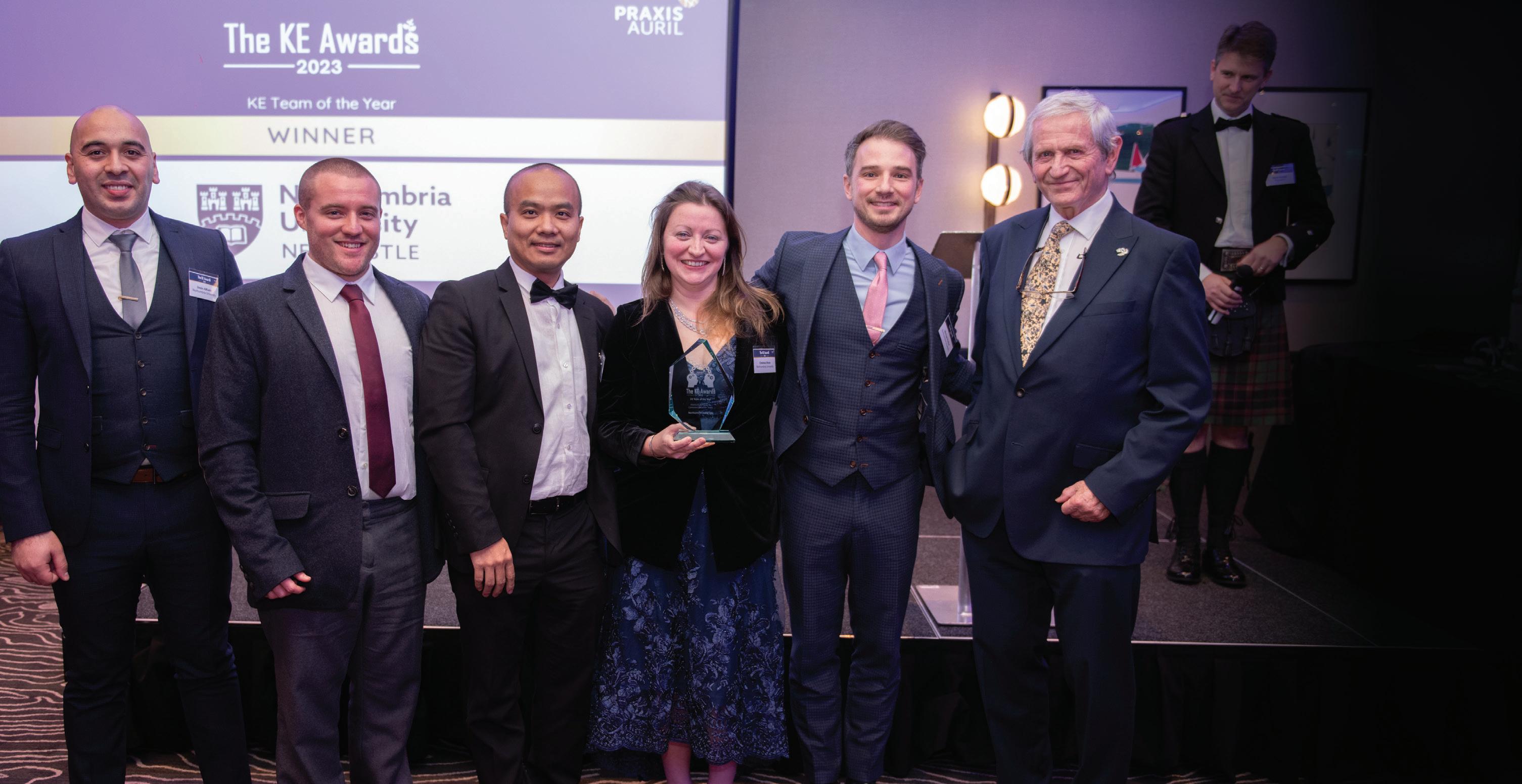
“NORTHUMBRIA
UNIVERSITY HAS BEEN THROUGH A REMARKABLE TRANSFORMATION IN ITS COMMERCIALISATION ACTIVITY OVER RECENT YEARS AND THIS RECOGNITION IS ANOTHER EXAMPLE OF HOW WE ARE DOING THINGS DIFFERENTLY AND DELIVERING HIGH QUALITY RESEARCH, AT SCALE, AND WITH IMPACT.”
A specialist team dedicated to supporting the commercialisation and development of innovative ideas emerging from academic research at Northumbria have been named the best in the UK.
Northumbria University’s Intellectual Property (IP) Commercialisation team scooped the title of Knowledge Exchange Team of the Year at the PraxisAuril KE Awards in recognition of the scale and pace in which commercialisation activity has grown in recent years at Northumbria.
PraxisAuril is the UK’s professional association for people working in knowledge exchange activity in universities, public and private sector research organisations. Knowledge Exchange, or KE, is a collaborative process to translate innovative ideas and research into something which has impact on society and the economy, and the KE Awards scheme recognises the people and partnerships that underpin this work.
Northumbria’s IP Commercialisation team helps
researchers to identify, protect and exploit their intellectual property, creating impact from their ideas in several ways, including by finding partners or funding to support further development, managing the intellectual property process, and running training events and workshops.
Judges remarked on the considerable uplift in Northumbria’s commercialisation activity, from an almost zero base in 2019, to more than 120 commercialisation opportunities in development today. Of note was one active spin-out company currently attracting significant levels of interest and investment, a second spinout formed recently, and a further three companies in the pipeline for this year.
More than 70 invention disclosures – legal notifications
which form a key part of the patent development process – are submitted by the IP Commercialisation team each year, a clear indicator of the innovative research underway at Northumbria. The team has successfully secured over £750,000 in external funding for commercialisation activity.
Commenting on this, PraxisAuril judges said that Northumbria had “demonstrated how a modern university with highquality research can build a high-performing, sustainable technology transfer office without decades of investment and development.”
Professor Louise Bracken, Pro Vice-Chancellor for Research and Knowledge Exchange said: “Northumbria University has been through a remarkable transformation in its commercialisation activity over recent years and this recognition
is another example of how we are doing things differently and delivering high quality research, at scale, and with impact.
“This work has been driven and supported by a dedicated, passionate, and professional team of knowledge exchange professionals, who are now being recognised for their role in the commercialisation of our University’s highquality research, and also by our brilliant academics without whom we wouldn’t have fantastic innovations to commercialise. This award is a great honour and I’d like to offer my congratulations to everyone involved in this activity for this excellent achievement.”
Government body UK Research and Innovation (UKRI) was the lead supporter of the KE Awards. Emma Lindsell, UKRI’s Executive Director
of Strategy, Performance and Engagement said: “This year’s finalists exemplify the UK’s strengths and worldclass expertise in delivering sustainable innovation, impactful collaborations between academia and industry and pioneering approaches to address major societal challenges. These themes resonate deeply with UKRI’s commitment to fostering a culture where knowledge exchange is not just an activity, but a cornerstone for driving real-world impact.

Click the QR code to find out more about Northumbria’s IP Commercialisation team.
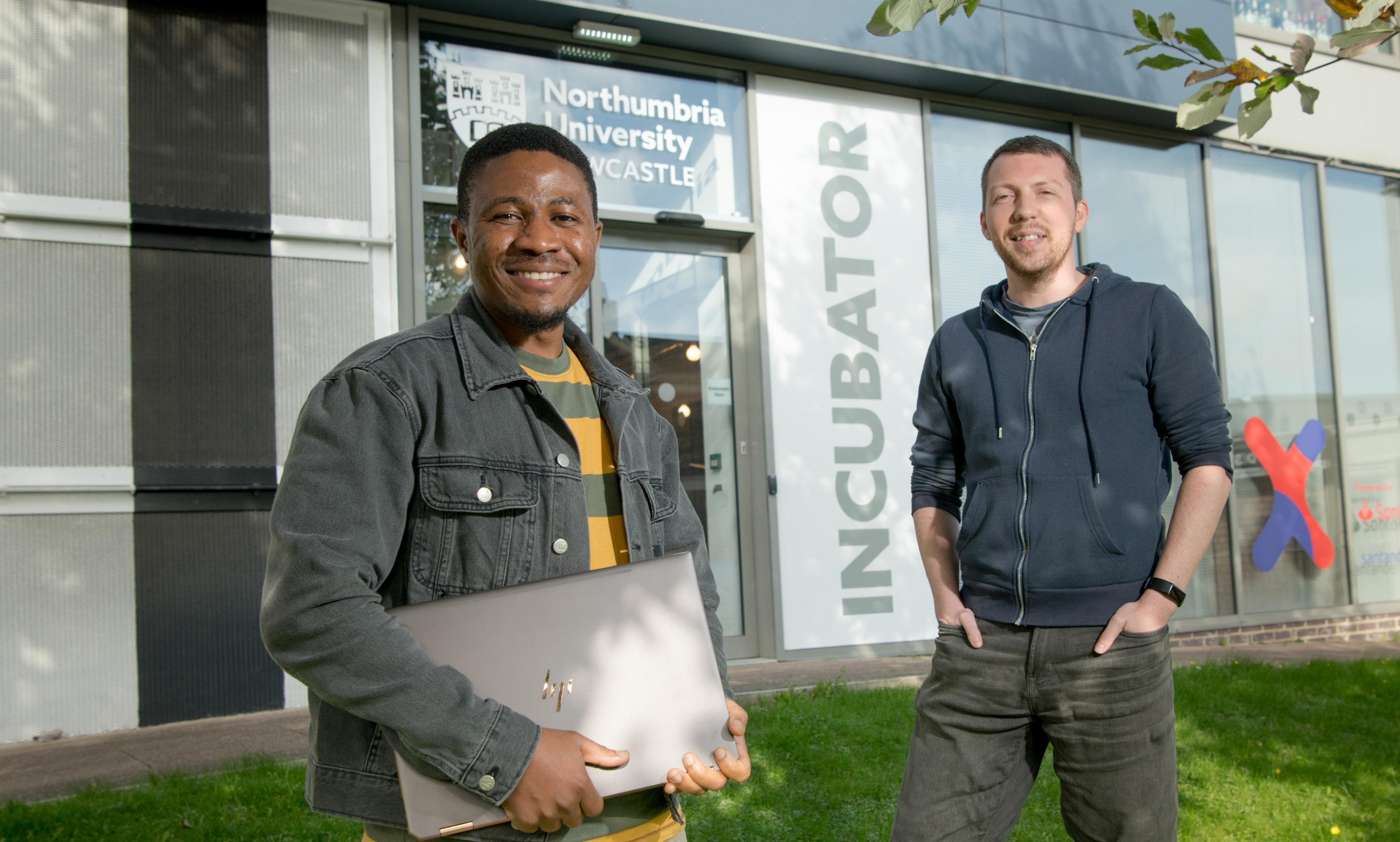
Mark Renny, founder of Newcastle-based tech company Wubbleyou, is encouraging North East business owners to expand their employment potential by hiring international graduates on longer-term contracts. Whilst this can be typically challenging for small businesses, Northumbria alumnus Mark explains how international graduates can plug crucial skills gaps and support the regional economy.
On the standard Graduate Visa programme, international graduates can currently work in the UK for up to two years after graduation. However, businesses can offer up to five years of employment by sponsoring foreign nationals through the Skilled Worker Visa programme, once the student has been granted a licence by the Home Office. Wubbleyou is one of only an estimated 300 small businesses in the region to have completed this process.
Mark explains how the accelerated growth of the company over the past five years has created recruitment opportunities for his business, including the hiring of two international graduates from Northumbria. Vincent Onyeabor from Nigeria is currently employed as an Associate IT
Analyst, and Divya Behera from India is an Associate Project Manager. Both Vincent and Divya are being sponsored by Wubbleyou through the Skilled Worker Visa programme.
Obtaining the licence can be challenging and costly, but Mark insists the payback for Wubbleyou has been significant and he believes many other small businesses and SMEs in the North East could benefit in the same way by exploring new recruitment opportunities. Mark explained: “Demand for top IT talent can be extremely high, especially given the growing ambitions and growing number of innovative and scaling tech businesses in the area.
“As a small but growing business we wanted to have the ability to invest in this top talent and be able to offer employment
to skilled international graduates beyond the standard short-term Graduate Work Visa. So, we took the plunge and went through the process required to sponsor foreign nationals on the longer-term Skilled Worker Visa Sponsorship.”
The cost and administrative time to do this can be particularly onerous for smaller businesses. Mark continued: “However, once you have gone through the process it becomes a lot less daunting, and I would say to other small businesses that the benefits can be considerable. International graduates offer diversity and new ways of thinking and in my view, they have already demonstrated a high level of initiative and commitment by travelling halfway around the world to study.
“AS A SMALL BUT GROWING BUSINESS WE WANTED TO HAVE THE ABILITY TO INVEST IN THIS TOP TALENT AND BE TO ABLE OFFER EMPLOYMENT TO SKILLED INTERNATIONAL GRADUATES BEYOND THE STANDARD SHORT-TERM GRADUATE WORK VISA. SO, WE TOOK THE PLUNGE AND WENT THROUGH THE PROCESS REQUIRED TO SPONSOR FOREIGN NATIONALS ON THE LONGER-TERM SKILLED WORKER VISA SPONSORSHIP.”
“We have also worked with the Graduates Futures team at Northumbria for a number of years, and they have been extremely supportive again in helping us find the right people in Vincent and Divya.”
Graduate Futures offers professional careers support to recent Northumbria students up to five years after graduation. Graham Baty, Head of Enterprise Development within the Graduate Futures team, said: “We provide a range of enterprise support at Northumbria, including business advice, mentoring, incubator hub facilities and other services and have worked with Wubbleyou since
its inception as a start-up in 2009, when Mark was still a student here. So, it is incredibly rewarding to see the company’s continuing success, and the job opportunities being created for our high-quality graduates like Vincent and Divya. Northumbria is known for its entrepreneurial students and graduates generating wealth and employment for the region, and Wubbleyou is a perfect example of this.”
Click the QR code to find out more about student and graduate enterprise at Northumbria.

Academics at Northumbria University have secured research funding to investigate how ethical reviews can safeguard the use of artificial intelligence (AI) in policing.
The funding, worth £286,000, is part of an ongoing Bridging Responsible AI Divides (BRAID) programme by the Arts and Humanities Research Council (AHRC).
The research entitled an Ethical review to support Responsible AI in Policing – A Preliminary Study of West Midlands Police’s specialist data ethics review committee will be led by Professor Marion Oswald MBE from Northumbria Law School. She will work in collaboration with colleagues from Northumbria, Northampton, Glasgow and Aberdeen Universities, and partner with the office of the West Midlands Police and Crime Commissioner and West Midlands Police.
The study will investigate how the role of the West Midlands Police and Crime Commissioner and the West Midlands Police Data

Ethics Committee can improve the legitimacy and responsibility of AI deployed by the police and how its advice has influenced technical developments. The research will also consider key challenges of the ethical review process and how the views and interests of marginalised groups can be better represented.
Professor Oswald’s research expertise covers the legal and ethical implications of new technologies in policing and national security. She has provided evidence and advice to the House of Lords Justice and Home Affairs Committee on the use of new technologies in the justice system, including facial recognition and AI. She is also a part-time Senior Research Associate with the Safe and Ethical AI Programme at the Alan Turing Institute.
Commenting on the AHRC funding she said: “The deployment of AI
and emerging technologies by the police promises more effective use of data for the prevention and detection of crime, but brings with it considerable threats of disproportionality and interference with fundamental rights. The West Midlands Police and Crime Commissioner and West Midlands Police data ethics committee aims to bridge the gap between ethical reflection, scientific rigour and a focus on human rights, thus contributing to responsible AI in policing.
“Our research brings together an experienced and integrated team combining expertise in law, computer science, criminal and social justice, and presents a unique opportunity to analyse operationalisation of AI tools in policing, and the impacts of advice from the West Midlands Police data
ethics committee. We are delighted to have been awarded funding for this project and to be supporting the wider aims of the AHRC’s BRAID programme.”
Northumbria University has a global reputation for research and teaching in AI and was recently awarded £9 million by UK Research and Innovation to establish a Centre for Doctoral Training in the field of AI. To be known as the Citizen-Centred AI (CCAI), it will focus on the inclusion of citizens in the design and evaluation of AI – helping to make the rapidly advancing technology work for ordinary people.
Click the QR code to discover more about Northumbria Law School.

“THE DEPLOYMENT OF AI AND EMERGING TECHNOLOGIES BY THE POLICE PROMISES MORE EFFECTIVE USE OF DATA FOR THE PREVENTION AND DETECTION OF CRIME, BUT BRINGS WITH IT CONSIDERABLE THREATS OF DISPROPORTIONALITY AND INTERFERENCE WITH FUNDAMENTAL RIGHTS.”
PROFESSOR MARION OSWALD

Below:
The High Commissioner for The Bahamas Paul
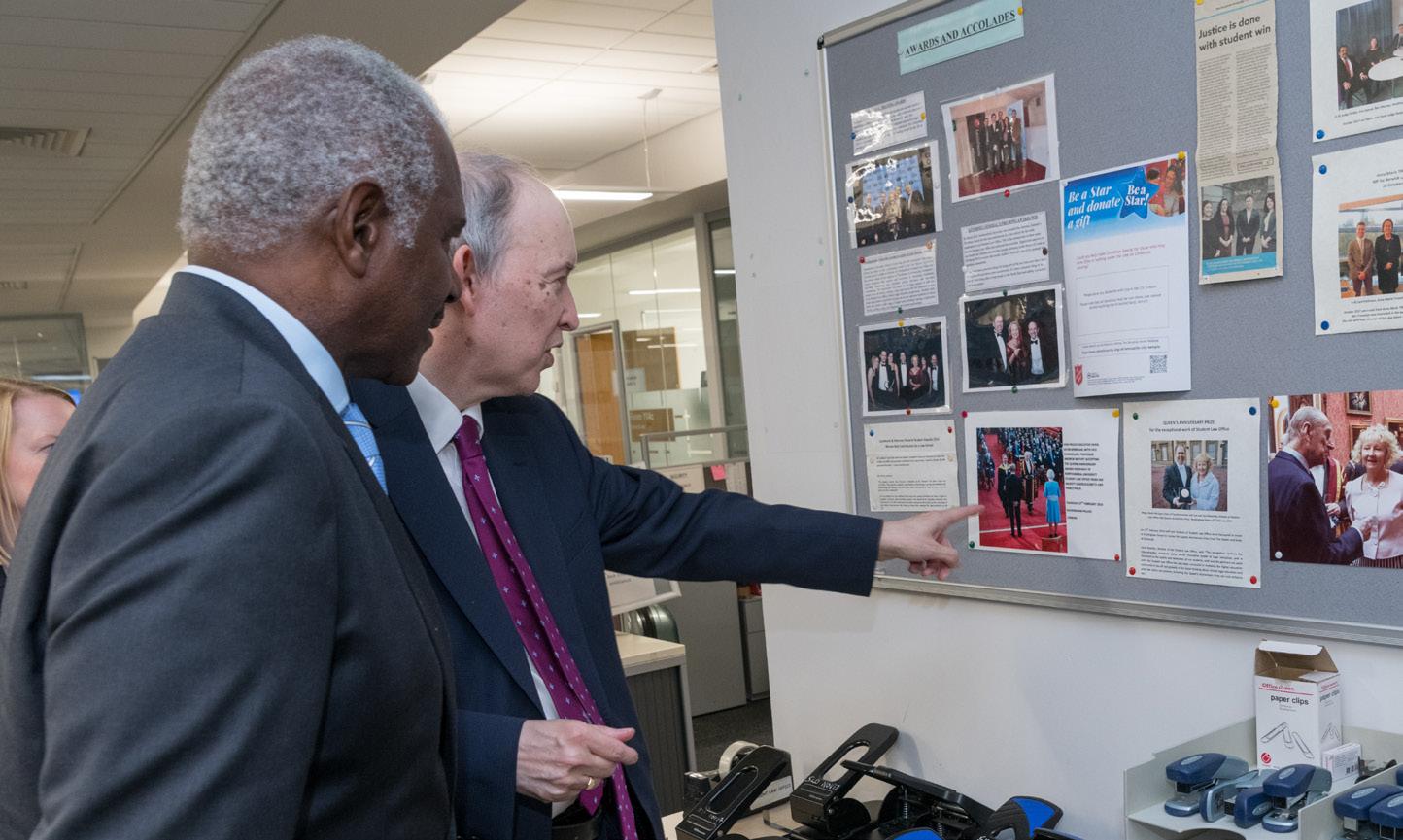
“WE DISCUSSED THE POSITIONING OF NORTHUMBRIA IN HELPING TO ADDRESS UNFOLDING GLOBAL CHALLENGES INCLUDING ARTIFICIAL INTELLIGENCE AND CLIMATE CHANGE, IN A WAY THAT PROPELS THE UNIVERSITY TO CONTINUED SUCCESS.”
THE HIGH COMMISSIONER FOR THE BAHAMAS, PAUL ANDREW GOMEZ
The High Commissioner for The Bahamas, Paul Andrew Gomez, has visited Northumbria to discuss opening up opportunities for Bahamian students to come and study law at the University.
The Bahamas is one of a number of countries whose legal system is based on English Common Law, following the English legal system. This means students from The Bahamas who complete their Bar qualification in the UK can then practice law back home in The Bahamas.
During his recent visit, Mr Gomez met with Bahamian law student, Amber Mingo, as well as speaking with academics and support staff in Northumbria’s Law School. He also met with Professor Andy Long, ViceChancellor and Chief Executive of Northumbria University, and took the opportunity to discuss further potential collaborative activities.
Welcoming the High Commissioner to Northumbria, Professor Long said: “We were delighted to showcase the exceptional work of the University’s Law School and to highlight the international reputation for excellence in legal education, enriched by the research quality and professional practice expertise of our staff.
“Northumbria would like to welcome more students from The Bahamas, providing them with an outstanding educational experience that ensures they are equipped with the tools they need to succeed anywhere in the world.”
Mr Gomez, who has held the role of High Commissioner for
The Bahamas since April 2023, also served as Ambassador to China (2015 to 2017) and has previously served as Managing Director of international chartered accountants, Grant Thornton. Explaining that the visit to Northumbria had exceeded his expectations, he added: “We discussed the positioning of Northumbria in helping to address unfolding global challenges including artificial intelligence and climate change, in a way that propels the University to continued success.
The visit to the Law School took our trip to yet another level, and Professor Michael Stockdale gave our group a royal reception.
A round table discussion with law students working on research to provide legal aid to the community, was uniquely positive and enriching.”
While there was a strong focus on law, Mr Gomez was also provided with information on some of Northumbria’s other formal teaching partnerships including with St George’s University, from fellow Caribbean island Grenada – a partnership that delivers medical education to students worldwide.
During the High Commissioner’s visit to
Newcastle, Mr Gomez and his team also spent time with Trinity Chambers, one of the leading sets of barristers’ chambers in the North of Engand, where a number of Northumbria Law School academics are practicing barristers.
Head of Trinity Chambers, Toby Hedworth K.C. said: “It was both an honour and a pleasure to welcome the High Commissioner for The Bahamas to Trinity Chambers. His visit to The Custom House was an opportunity for us to discuss the great opportunities that can be provided to students from The Bahamas for vocational training in conjunction with our local universities, which have international reputations for the quality of their courses. The international legal world is shrinking, providing wonderful opportunities for those able to have achieved the best of qualifications.”
Click the QR code to discover more about Northumbria Law School.


Northumbria University’s Women’s Rugby League side has made history by winning the inaugural Women’s University Winter League – in their first year of existence.
The side, which beat the University of Liverpool 8-0 in a tightly contested cup final, were formed in 2023 and are the first Women’s Rugby League team to play at university level in the North East.
The establishment of a women’s side was driven by a desire to give a level playing field for talented female athletes who wanted to follow in the footsteps of the successful men’s sides.
Katie Richardson, president of Women’s Rugby League at Northumbria, said: “This was a
fantastic end to what has been a brilliant season for the side. We’ve come such a long way in such a short time, and to be national champions in our first season has gone way above our ambitions when we first started playing just under a year ago.”
Adding to the success for Northumbria’s Rugby League programme, the Men’s 1st and 2nd teams have had unprecedented success with both sides winning their leagues and national titles in both cup
format and 9’s – a short form version of the game. In a season where neither side lost a game, Northumbria has cemented its position as the best Rugby League programme in the country.
Reflecting on the season, Jason Payne - Northumbria Sport’s Head of Rugby League, said: “It is hard to understate what an amazing season the Rugby League programme has had this year – huge credit must go to our players, who continue to deliver these brilliant results.
“When the women’s side was formed in 2023, it was a logical step given how much of a dominant force our men’s teams are at this level in the UK. I am absolutely delighted with the progress so far and I look forward to even more success over the coming years.”
Following the introduction of the Women’s Winter League –which also included teams from Loughborough, Manchester, Nottingham and Oxford Universities - the Rugby Football League, will continue to work with British Universities & Colleges Sport (BUCS) with a view to introducing an official University competition for Women’s Rugby League.
Daryl Dixon, Head of Sport at Northumbria said: “The support
from the Rugby Football League and BUCS to aid the development of a women’s team has been brilliant and we look forward to growing the success of the side even further next year.
“The University is incredibly proud of our Rugby League sides and our coaches play such an important role in developing our students on and off the field and this year’s success is the result of several years of hard work, dedication and commitment from Jason Payne, Adam Houston, and Jake Lightowler.’’
Click the QR code to learn more about Rugby League at Northumbria.



Northumbria University has been accredited for providing a nationally recognised vocational coaching qualification to PE teachers, fitness professionals and sports coaches.
The UK Strength and Conditioning Association (UKSCA) is a professional body established to set standards for strength and conditioning (S&C) coaching in the UK. The UKSCA Trainer’s Award is a teaching qualification designed for PE teachers, sports coaches, fitness instructors, and therapists to safely prescribe and coach elements of strength and conditioning-related training. Dr Thomas Jones, Programme Lead for the MSc in S&C at Northumbria University and Greg Aspin, Head of S&C at Northumbria are now both certified to deliver the course within the University.
Dr Thomas Jones holds a PhD in Sports Physiology from Northumbria University and is accredited as a S&C Coach and Sports Scientist with the UKSCA and the British Association of Sport and Exercise Sciences (BASES). With an extensive background in a variety of highperformance sporting roles,
Dr Jones now provides sports science support to Newcastle United Football Club Academy, as well as maintaining research collaborations with the Swedish Winter Sports Research Centre, Newcastle Falcons Rugby Club and Aspire Academy for Sports Excellence.
Greg Aspin holds a BSc (Hons) and MSc in Sport and Exercise Science from Leeds Beckett University and Teesside University respectively. Greg is currently Head of S&C at Northumbria University and is an accredited coach with the UKSCA. He is also a supervised Sport Scientist with the British Association of Sport and Exercise Sciences (BASES).
Northumbria has now become one of a select few UKSCA course providers nationwide. The UKSCA Trainer’s Award was launched in response to demand from early-career S&C coaches and associated professions such as sports coaches, physiotherapists,
and PE teachers. Through a combination of practical workshops and distance learning, the UKSCA endorsed Level 3 S&C Trainer Diploma aims to prepare, develop, and motivate aspiring coaches, whilst introducing practitioners to the key principles of S&C. The course lasts for around nine months and the first intake was in January.
When discussing the benefits of the course, Dr Jones commented: “This learning experience provides PE teachers, fitness professionals, and sports coaches with a nationally recognised vocational coaching qualification. It includes registration to the UKSCA national register as strength and conditioning trainers, lifetime access to a bank of online coaching resources, and a great start to an individual’s strength and conditioning journey.”
The UKSCA has worked in partnership with the Chartered Institute for the Management
of Sport and Physical Activity (CIMSPA) to develop the S&C Trainer Award. This is based on the skills and knowledge covered in the UKSCA’s Foundation workshop which has been running for over 10 years and has seen over 4,500 people progress.
“The UKSCA S&C Trainer Award is an excellent qualification for those wishing to enter the strength and conditioning industry,” added Greg. “It is also extremely valuable for practitioners from other disciplines already working in sport (coaches, physiotherapists, etc.) who wish to gain a more comprehensive understanding of strength and conditioning.”
Click the QR code for more information about the course.

“THIS LEARNING EXPERIENCE PROVIDES PE TEACHERS, FITNESS PROFESSIONALS AND SPORTS COACHES WITH A NATIONALLY RECOGNISED VOCATIONAL COACHING QUALIFICATION. IT INCLUDES REGISTRATION TO THE UKSCA NATIONAL REGISTER AS STRENGTH AND CONDITIONING TRAINERS, LIFETIME ACCESS TO A BANK OF ONLINE COACHING RESOURCES, AND A GREAT START TO AN INDIVIDUAL’S STRENGTH AND CONDITIONING JOURNEY.”
DR THOMAS JONES